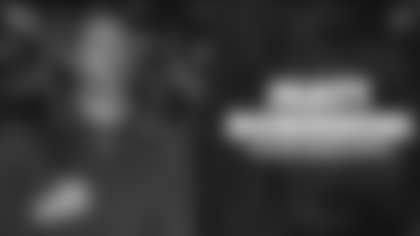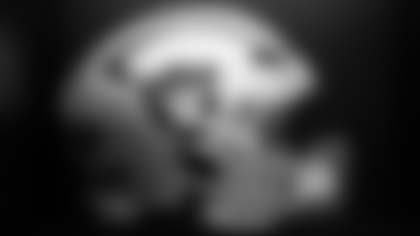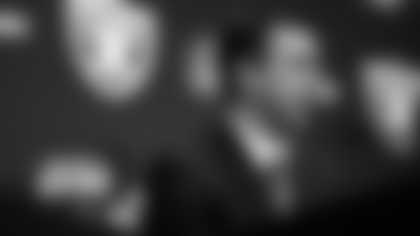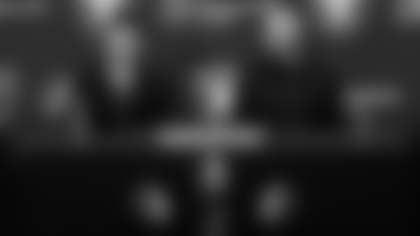There's not a four-year Historically Black College or University west of the Texas border.
So, while HBCUs boast a rich history tied with the Raiders, it's fair to assume the city of Las Vegas doesn't truly know what they can expect in Allegiant Stadium on October 25.
Yes, a football game will be at the reason Jackson State and Grambling State face off for the inaugural Las Vegas HBCU Classic. The two schools have rich history as rivals and with producing NFL talent.
Names like Eddie Robinson, Willie Brown, Walter Payton, Jackie Slater and Doug Williams come to mind.
"When I was first approached about the Las Vegas HBCU Classic, I went to my boss, Mark Davis, and he was like, absolutely. Get it done," Raiders President Sandra Douglass Morgan told Sports Illustrated. "The love, adoration, support and most importantly, respect for HBCUs runs deep in the Raiders."
However, for those unfamiliar with HBCU football culture this side of the Mississippi, this will be more than just a football game being played in Las Vegas.
This will be an experience.

In weeks, the city of bright lights will be overtaken by unapologetic Black culture. This stems from the soul food being served at tailgates, to the stunning fashion choices at parades and galas and the boisterous sounds coming from brass instruments and drums.
Las Vegas has already seen a sneak peak of Grambling's "World Famed Tiger Marching Band" from their halftime performance during the Raiders’ victory over the Philadelphia Eagles in 2021.
Raiders Alumni Andrew Glover and Toby Myles are also alumni of these two respective universities, with their fondest memories going deeper than the gridiron.
The Raiders and Grambling State have history dating back to acquiring their former cornerback Willie Brown from the Denver Broncos, who ultimately became a Pro Football Hall of Fame cornerback for the Silver and Black. Glover, a former tight end, was a three-sport athlete at Grambling State, recruited by College Football Hall of Fame Coach Robinson and was later drafted by the Raiders in 1991.
He believes a lot of the pomp and circumstances now seen in the NFL originates from the HBCU gameday atmosphere.
"I think a lot of those individuals went to those games and they got a lot of ideas, specifically with the dancers and the entertainment and the big band," Glover said. "And we used to push the ball down the field a lot. The long passes and the excitement of the game overall. I think the AFL noticed it first and the NFL followed."
"It's part of our brand. It's what we do," Glover added. "We go in and we impact the people, we impact the culture, we impact the crowd."
Myles, a former offensive tackle, transferred to Jackson State as an upperclassman after going away to play at Power-Five program Mississippi State. As a Jackson, Mississippi, native, he described the decision as a homecoming in more ways than one.
"Just really a family mentality, lot of soul involved," Myles said. "We put our special thing on everything we do as far as football, the music, Greek life. It was just a great experience for me going to a HBCU.
"It was really just an electric atmosphere. It was almost like it was a game going on, but it was a party at the same time. It's a scene that you can't hardly duplicate. Just seeing it is believing it."
It's fitting this game will be played at the Raiders home stadium, as more than 80 players and coaches who have donned the Silver and Black attended a HBCU.
This includes four Pro Football Hall of Famers: Willie Brown, former Raiders assistant coach Jackie Slater, Art Shell, the first African American head coach in the modern era, and Jerry Rice, the NFL career leader in receptions and receiving yards.
Al Davis was also responsible for drafting quarterback Elridge Dickey from HBCU program Tennessee State. Dickey was the first Black quarterback to be selected in the first round of any professional football draft.
"I remember the first day I met Mr. Davis when I was traded from the Giants," Myles recalled. "Mr. Davis was coming out of the building and he started walking in my direction. And when Mr. Davis came and talked to me, he let me know how happy he was to have me and how he especially loved to come get good players from HBCUs. And he put his money where his mouth was."
Glover concurred. "We just wanted to have an opportunity to showcase our talent, and for me, I think we have the opportunity to allow the next generation to see where you could go," he said. "And definitely the Raiders and Al Davis have the history of giving us opportunities to showcase our talents."
Las Vegas has been known for embracing Black culture dating back to Sammy Davis Jr. and Nat King Cole headlining on the Strip. The movement would continue to be kicked into high gear with the Moulin Rouge agreement of 1960 breaking down color barriers for entertainers.
With this inaugural showcase, the realms of college football and entertainment will collide like never before in the city of Las Vegas. Fitting for a city now deemed "The Sports and Entertainment Capital of the World."
"I appreciate the Raiders and I appreciate Las Vegas for thinking of us," Glover said, "to bring a game of this magnitude to Las Vegas and to showcase out talent and allow our fanbase to come from all over the country. To have the opportunity to experience Allegiant Stadium, to experience Las Vegas and for everybody to have a good time.
"Gonna be like one big family reunion."
For information on tickets and travel packages for the Las Vegas HBCU Classic, visit allegiantstadium.com/lvhbcuclassic or @lvhbcuclassic on Instagram and X.
Take a look at the Raiders who have played for a Historically Black College or University. Not pictured: Jim Brewington from North Carolina Central (1961), Willie Williams from Grambling State University (1966), Richard Slight from North Carolina Central (1967), Rod Hill from Kentucky State University (1987) and Victor Jackson from Bowie State University (1987).
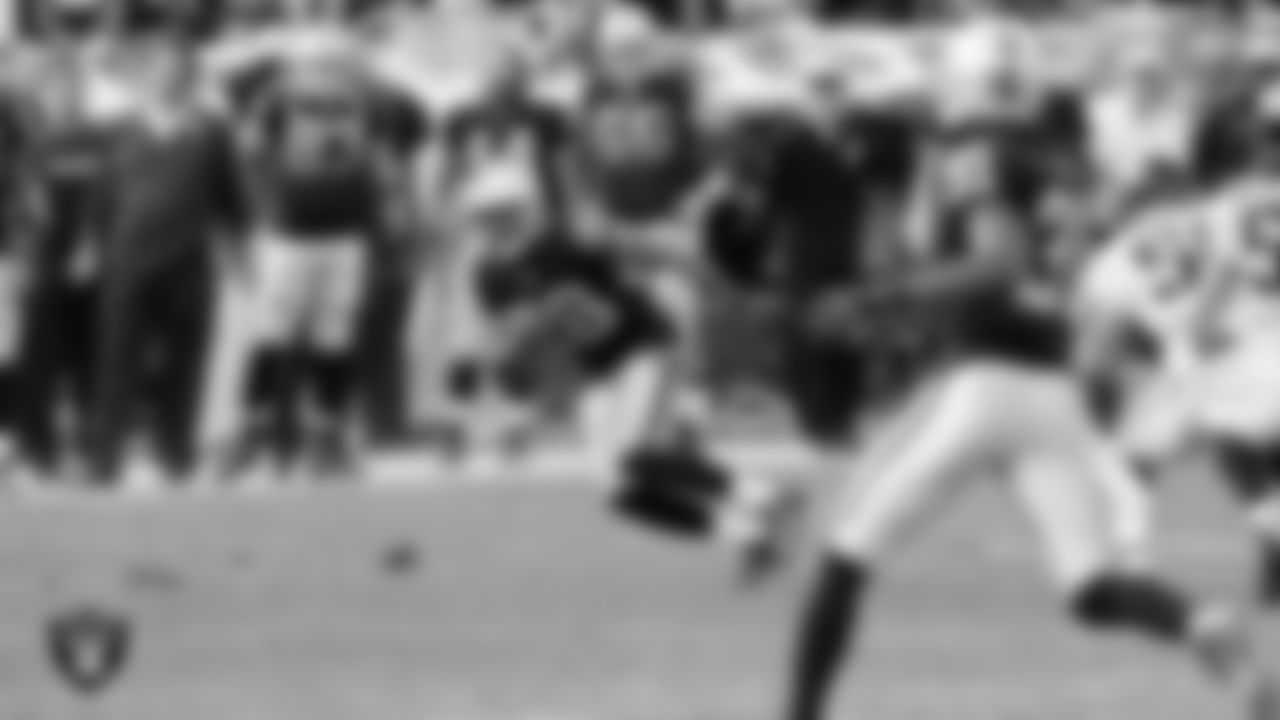
DB Phillip Adams (2012-13)
South Carolina State University
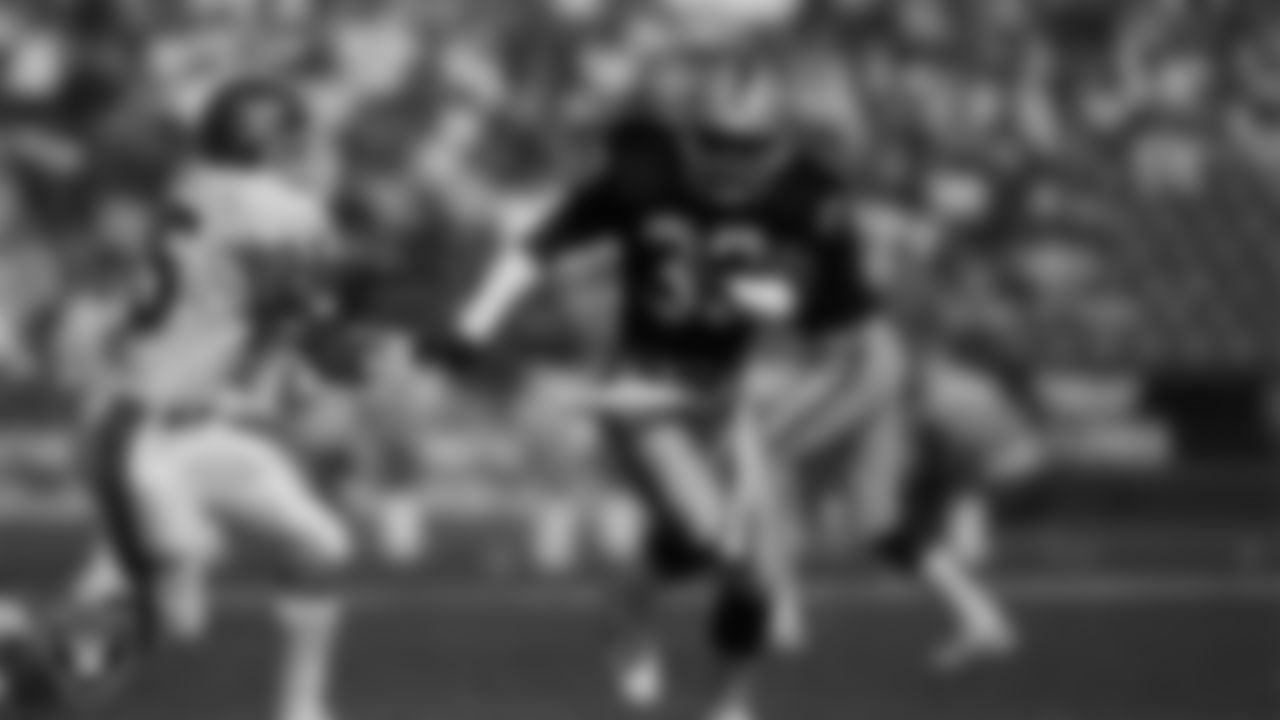
DB Eddie Anderson (1987-97)
Fort Valley State University
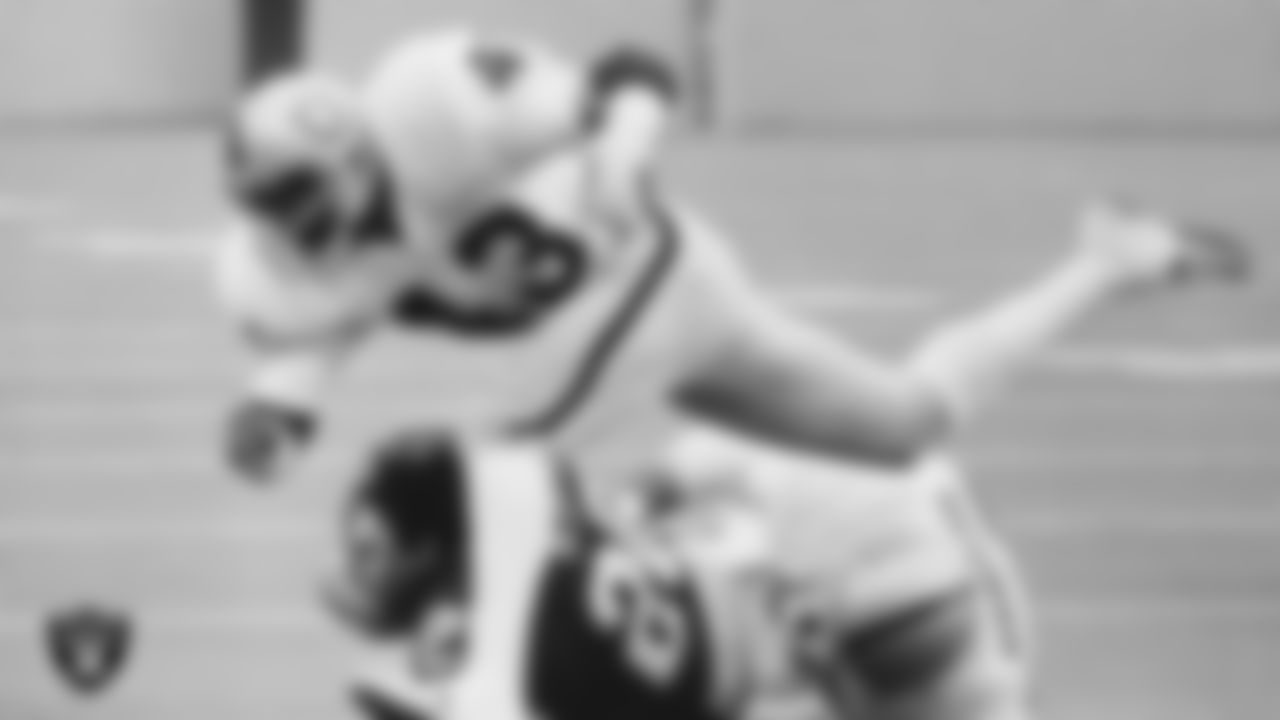
DB George Atkinson (1968-77)
Morris Brown College

WR Malcolm Barnwell (1981-84)
Virginia Union
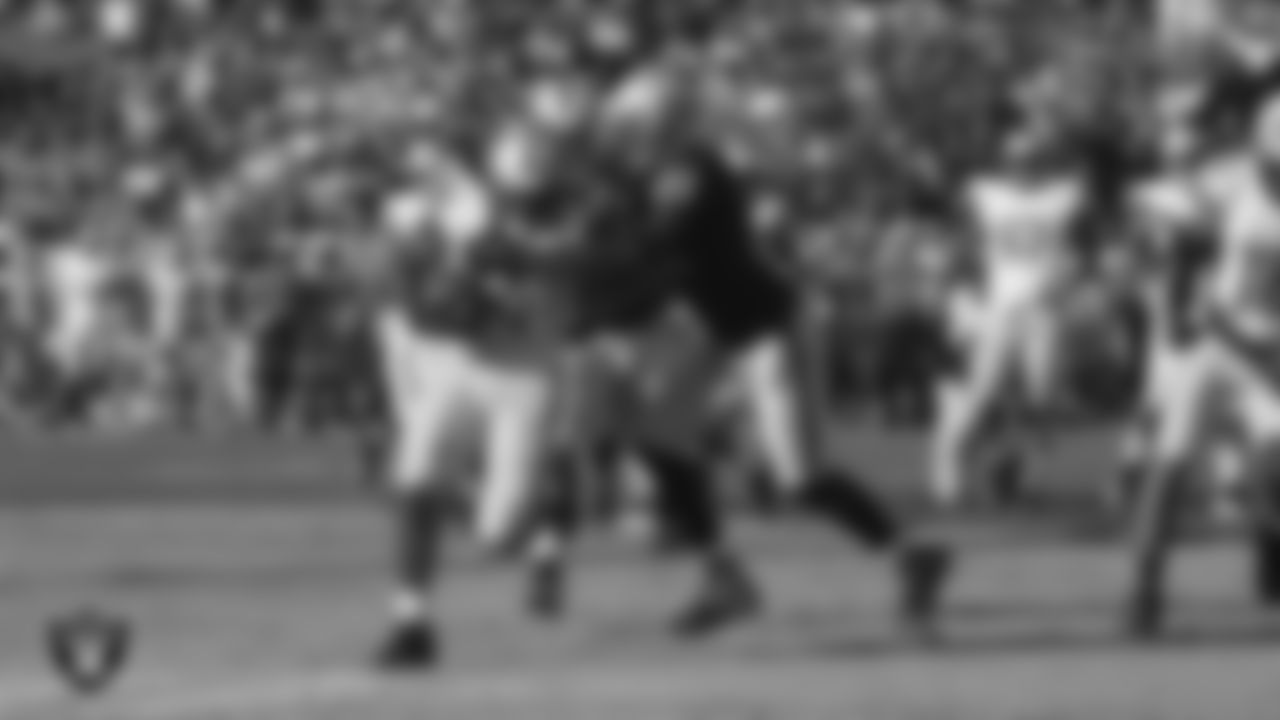
DB Ron Bartell (2012)
Howard University
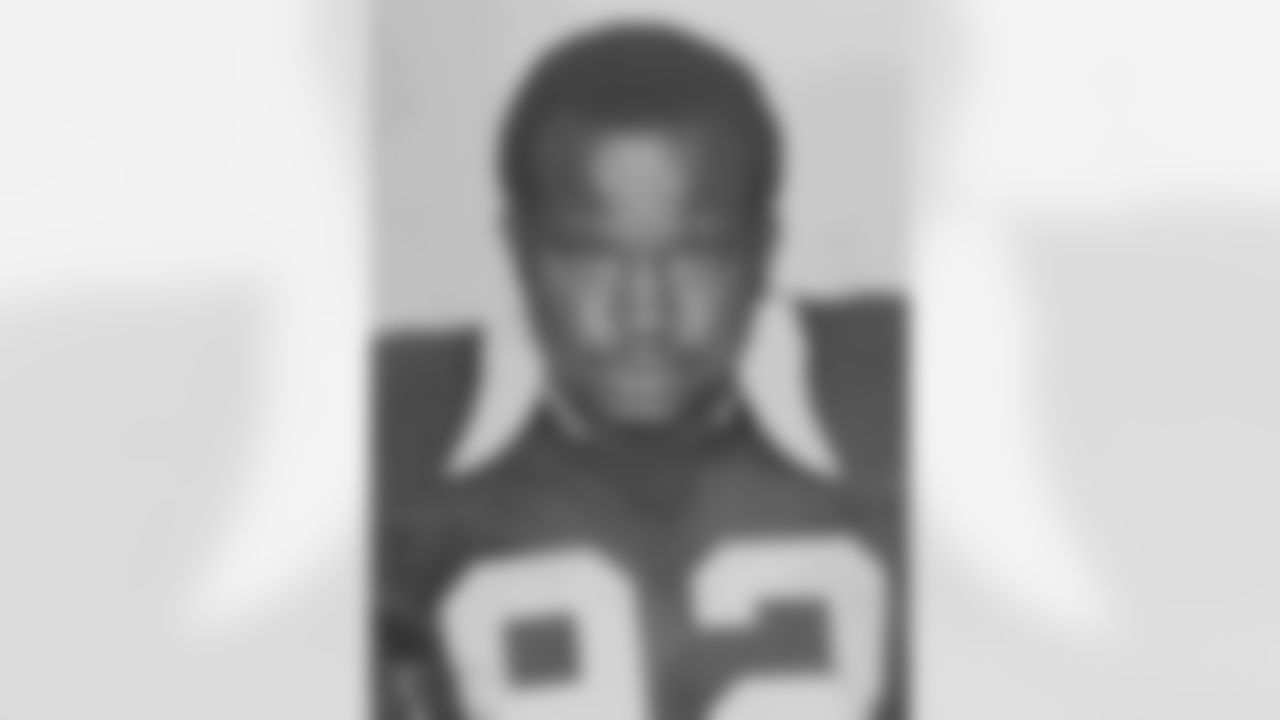
DE Joe Bell (1979)
Norfolk State
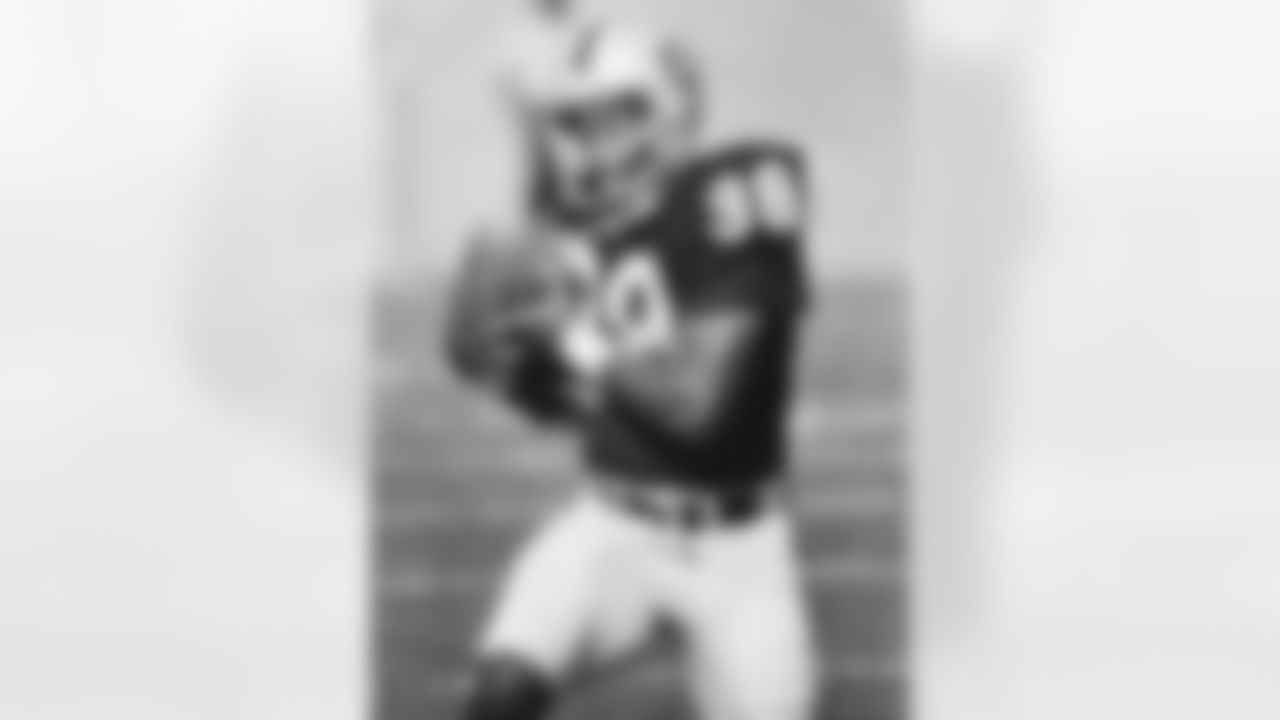
DB Rufus Bess (1979)
South Carolina State University

TE Raymond Chester (1970-72) (1978-81)
Morgan State
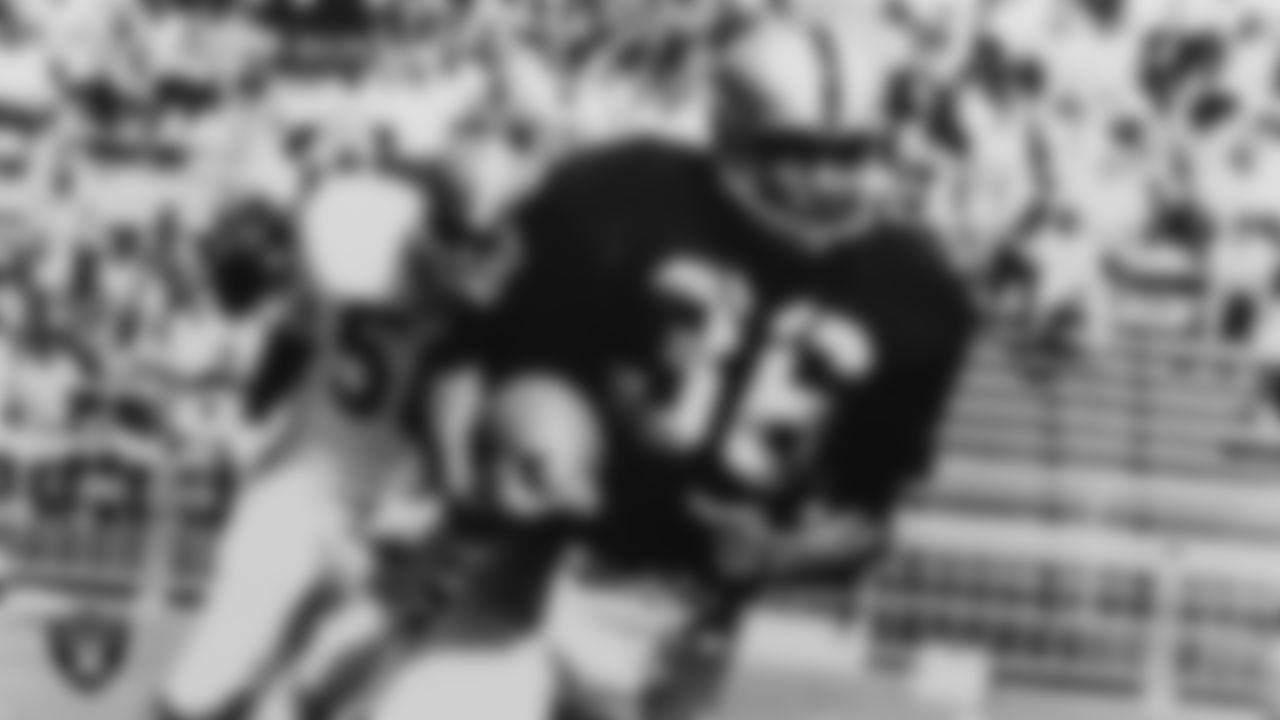
RB Clem Daniels (1961-67)
Prairie View A&M
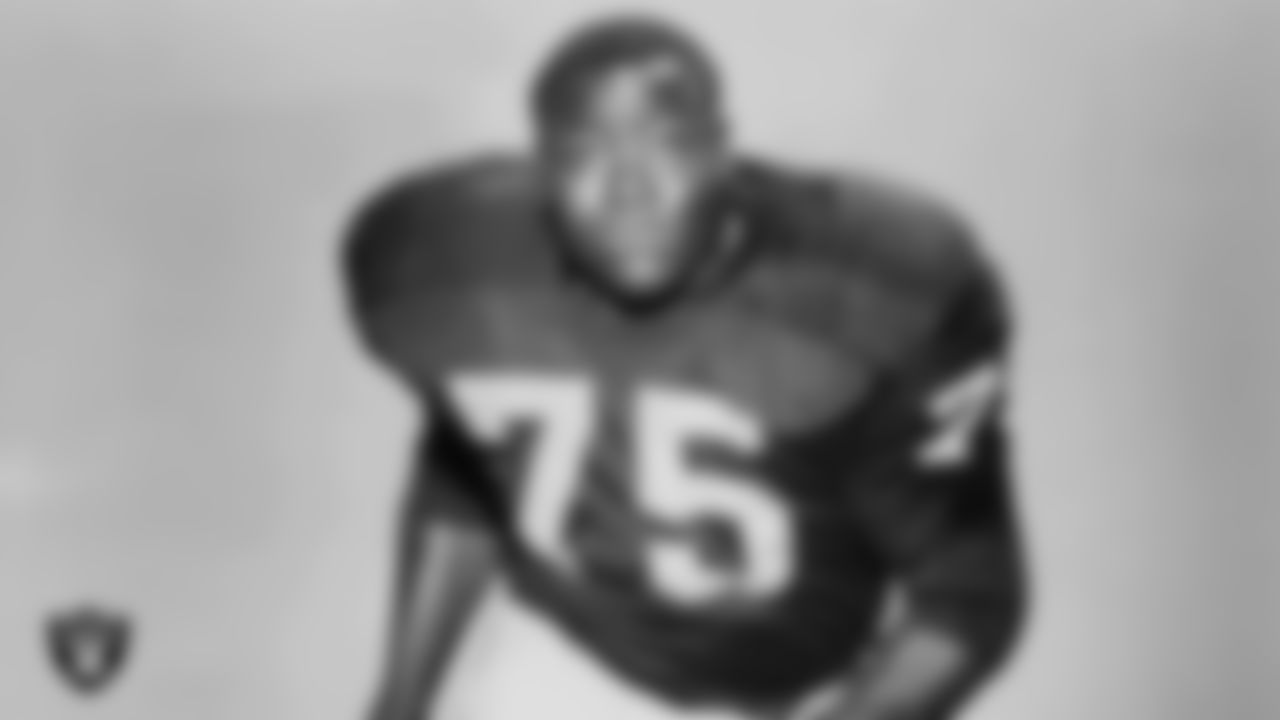
DT David Daniels (1966)
Florida A&M University

DB James Davis (1982-87)
Southern University
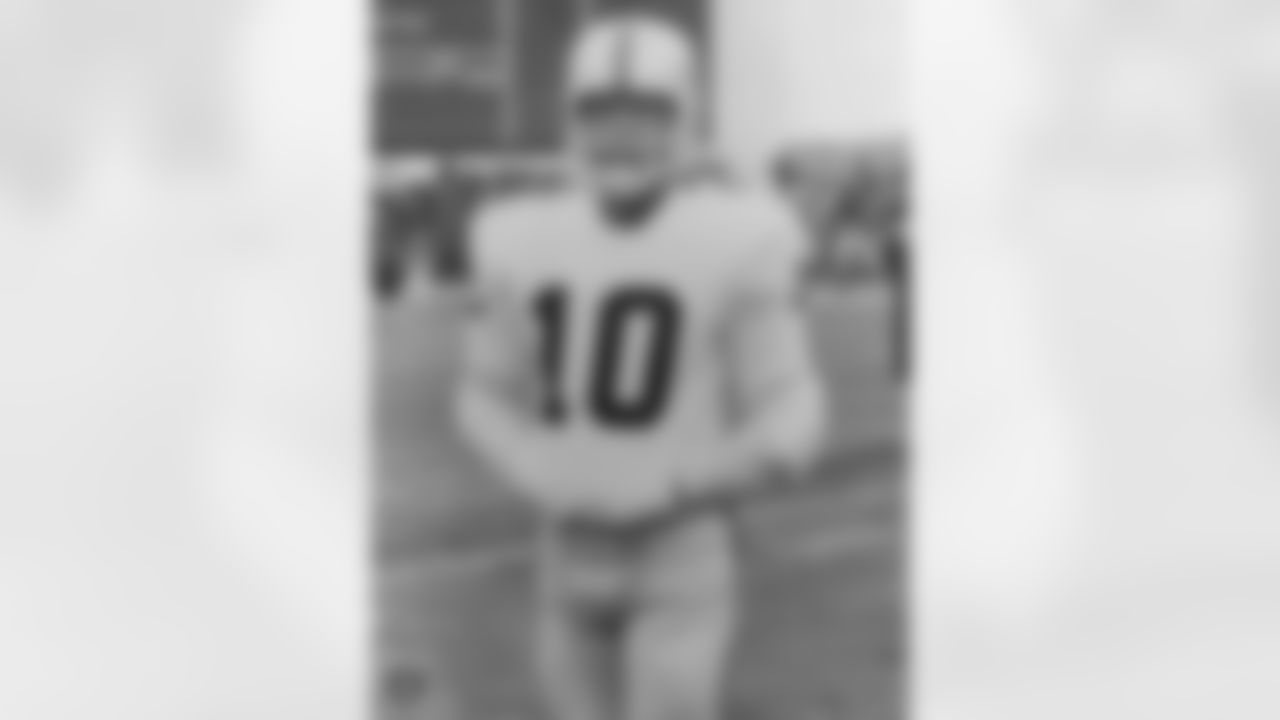
WR Eldridge Dickey (1968-71)
Tennessee State University

RB Hewritt Dixon (1966-70)
Florida A&M University
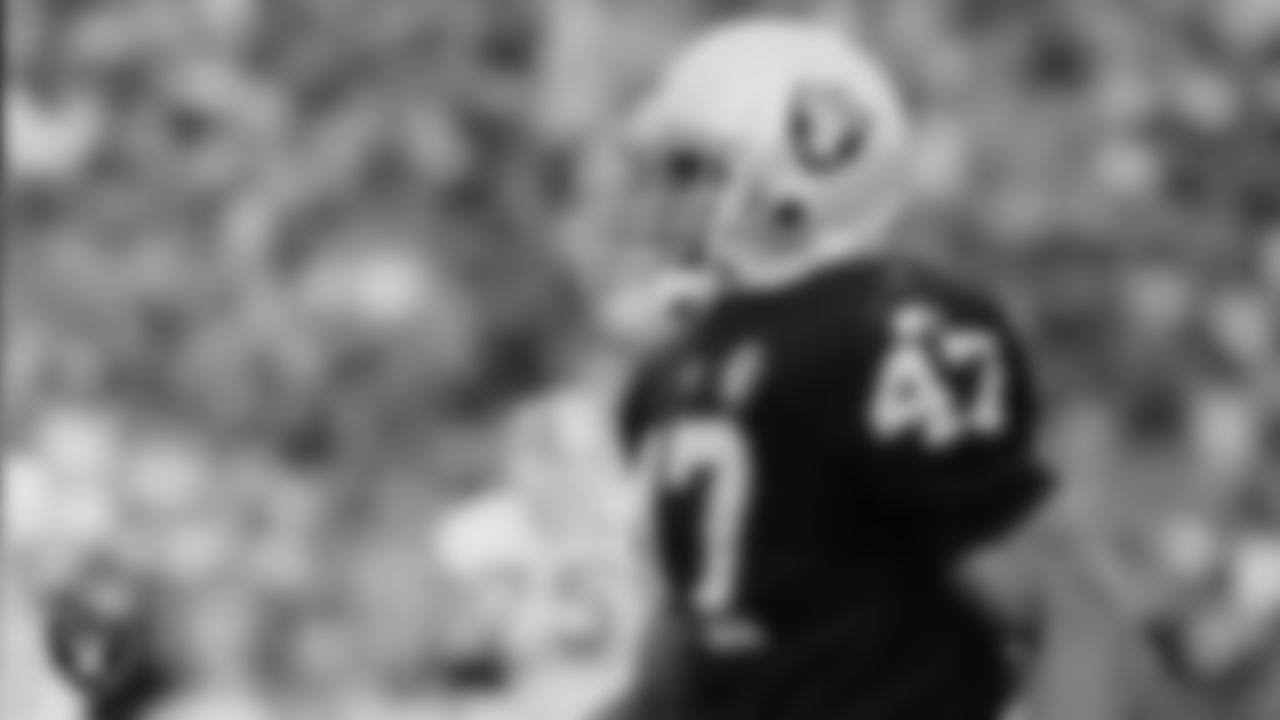
DB Donald Frank (1994)
Winston-Salem State

DT Al Dotson (1968-70)
Grambling State University
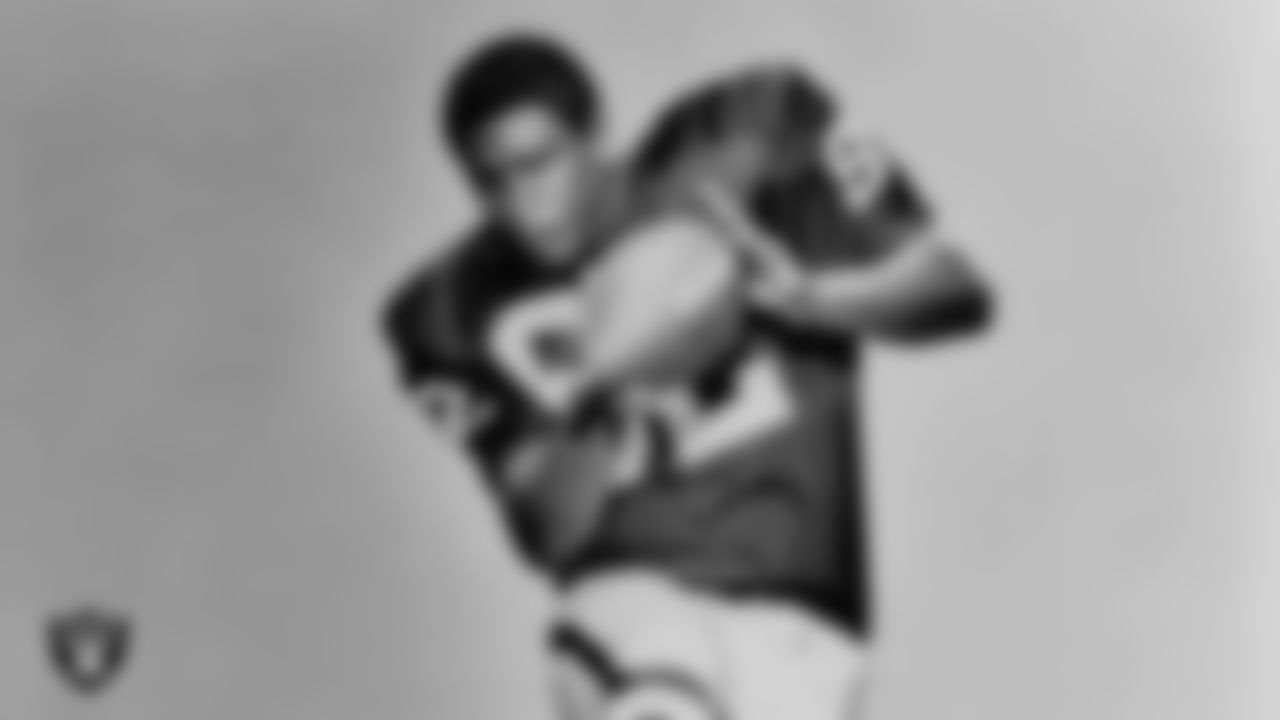
TE John Eason (1968)
Florida A&M University

DE Elvis Franks (1985-86)
Morgan State

RB Derrick Gainer (1992)
Florida A&M University
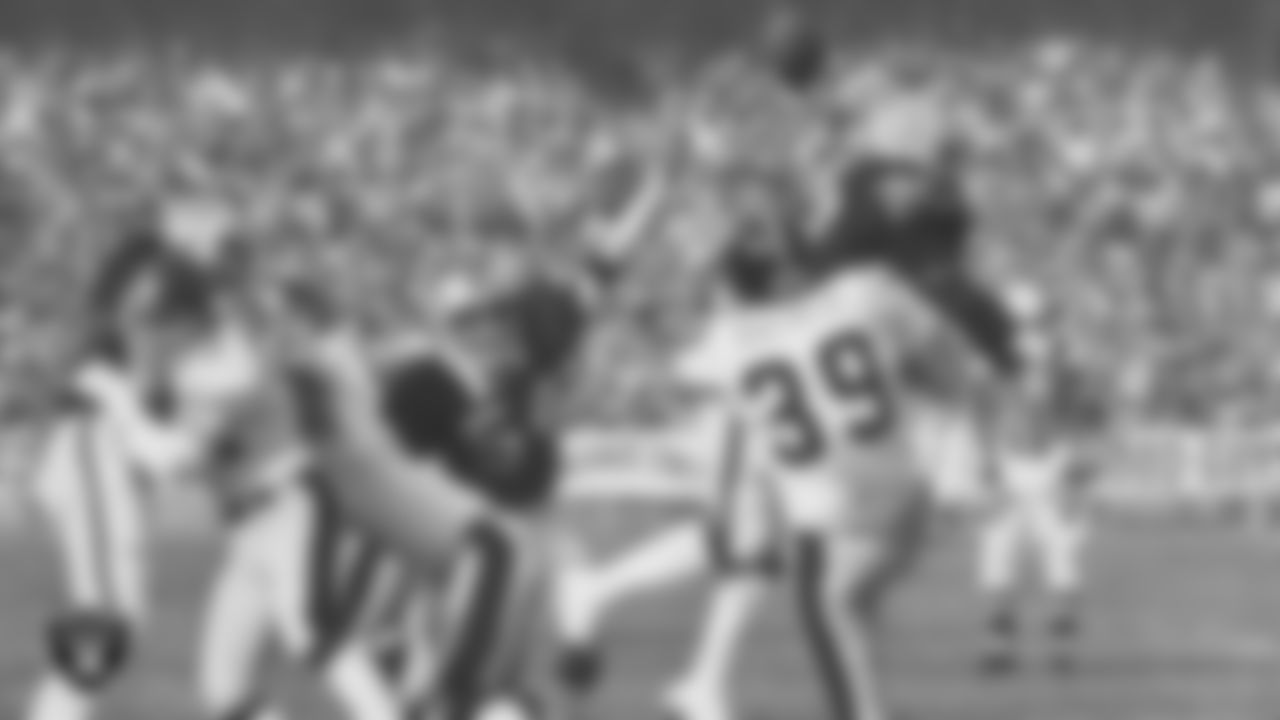
RB Hubert Ginn (1976-78)
Florida A&M University

TE Andrew Glover (1991-96)
Grambling State University

DB Antonio Hamilton (2016-17)
South Carolina State University
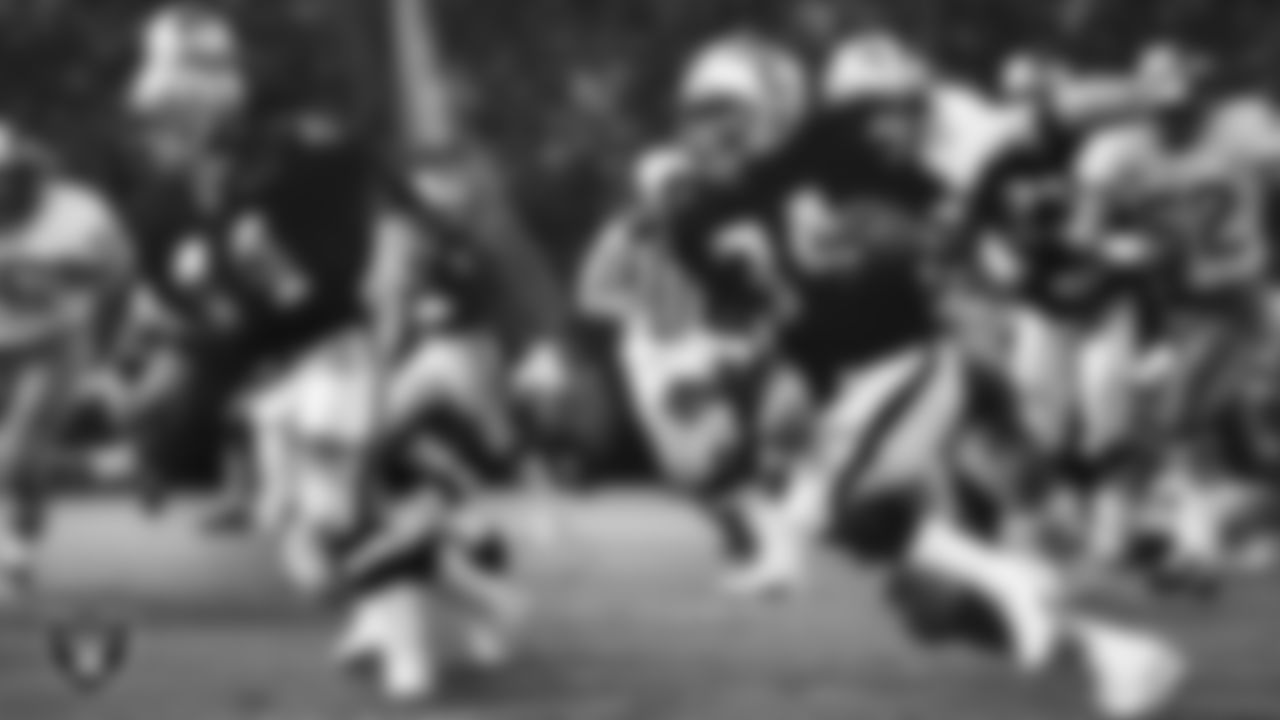
RB Harold Hart (1974-75)(1978)
Texas Southern University
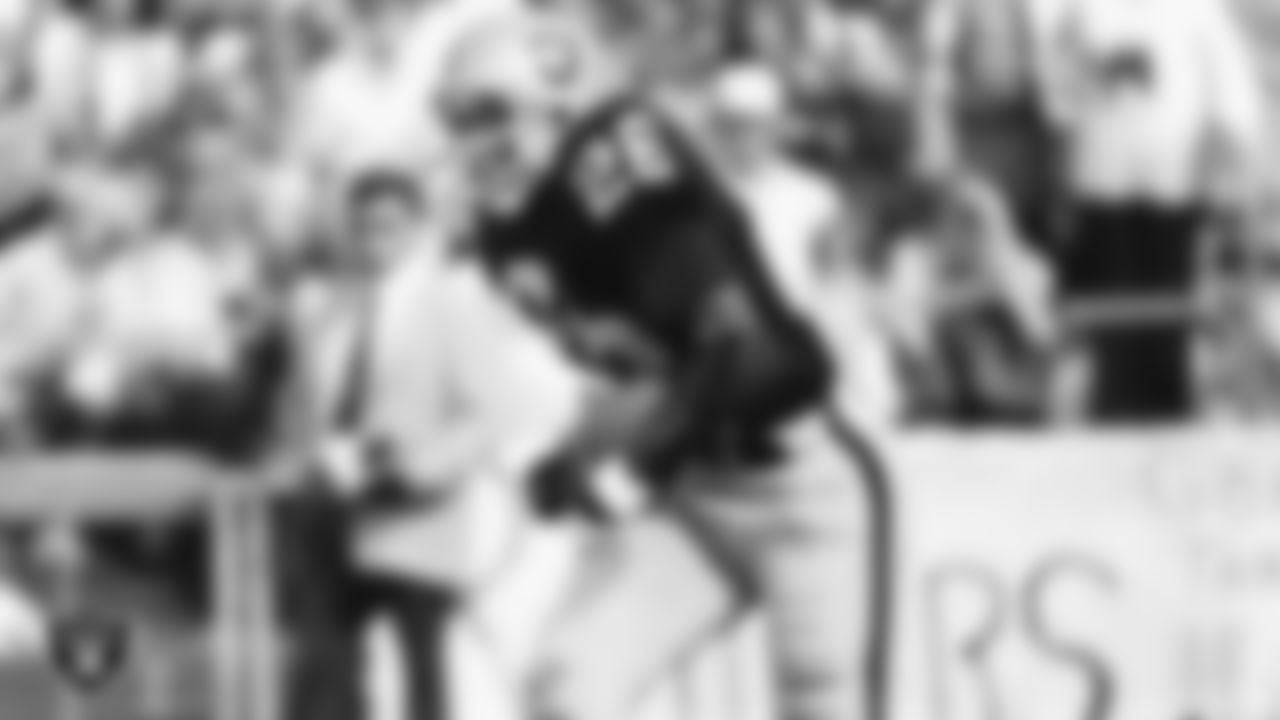
RB Clarence Hawkins (1979)
Florida A&M University
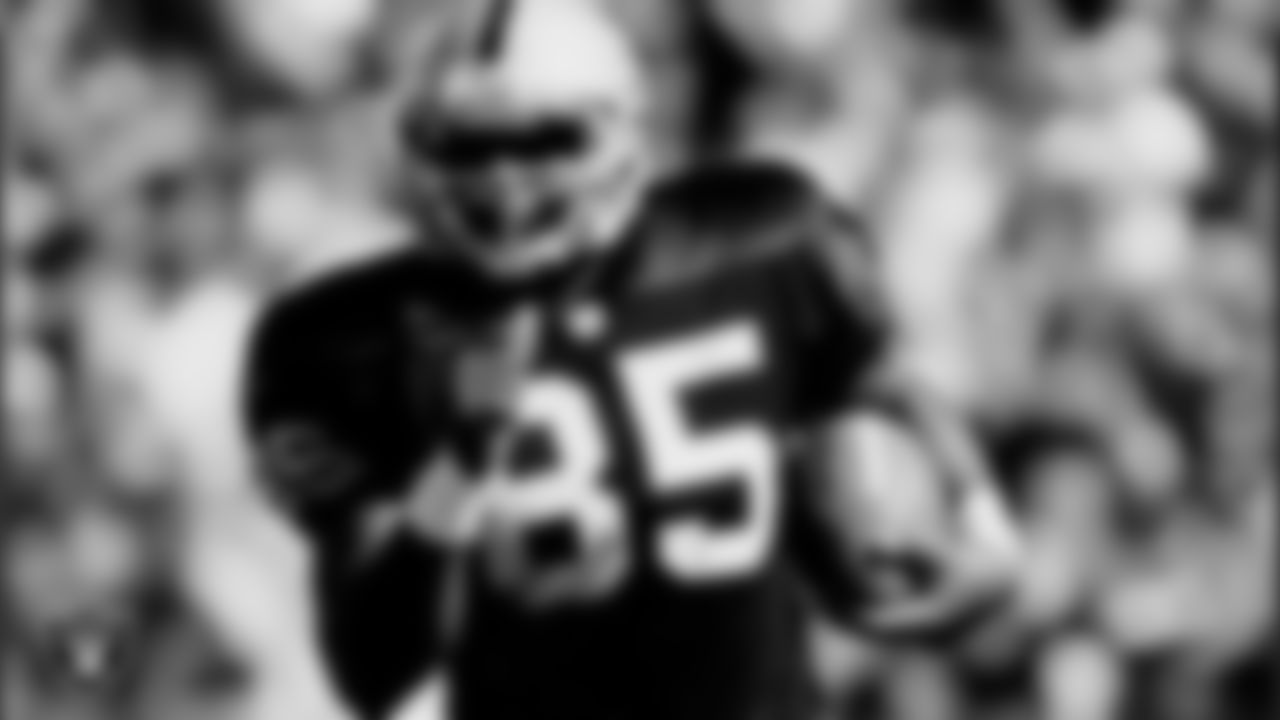
TE Marcus Hinton (1995-96)
Alcorn State University

G Lester Holmes (1997)
Jackson State University

LB Gerald Irons (1970-75)
Maryland State

DT Grady Jackson (1997-2001)
Knoxville College

LB Richard Jackson (1966)
Southern University

WR Greg Jenkins (2013)
Alabama State

LB/DE AJ Jimerson (1990-91)
Norfolk State
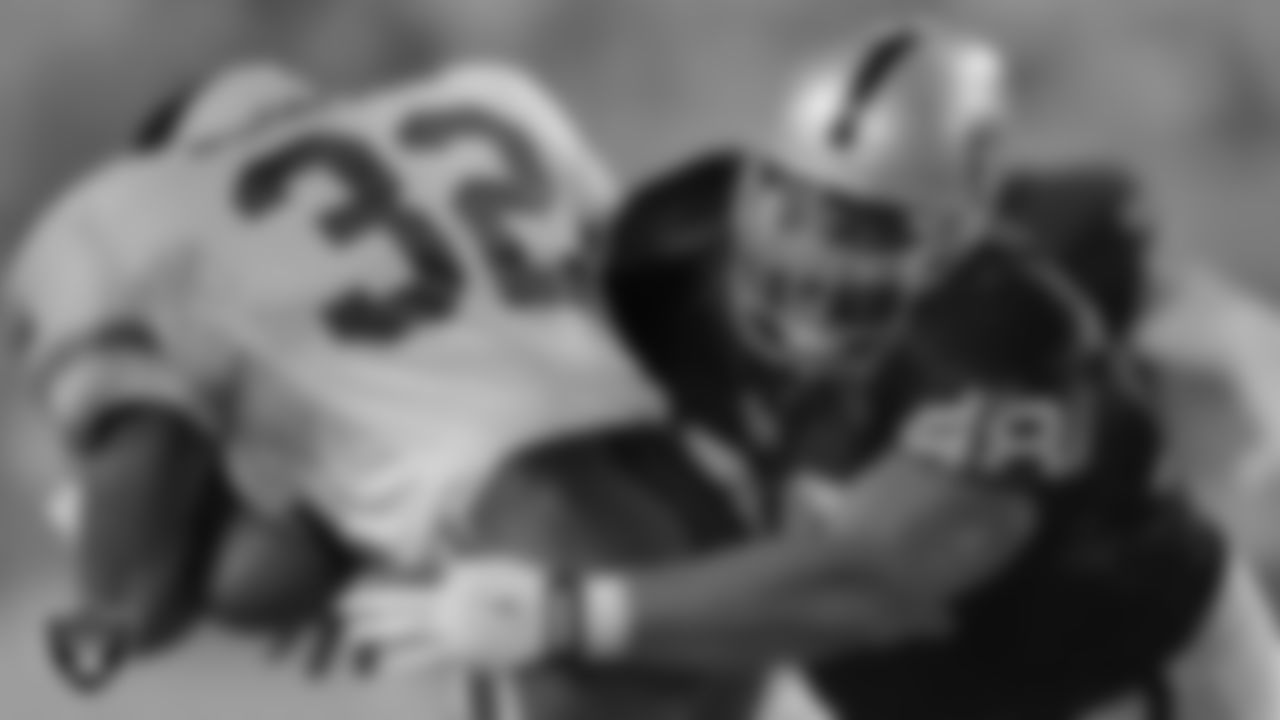
DT Kevin Johnson (1997)
Texas Southern University
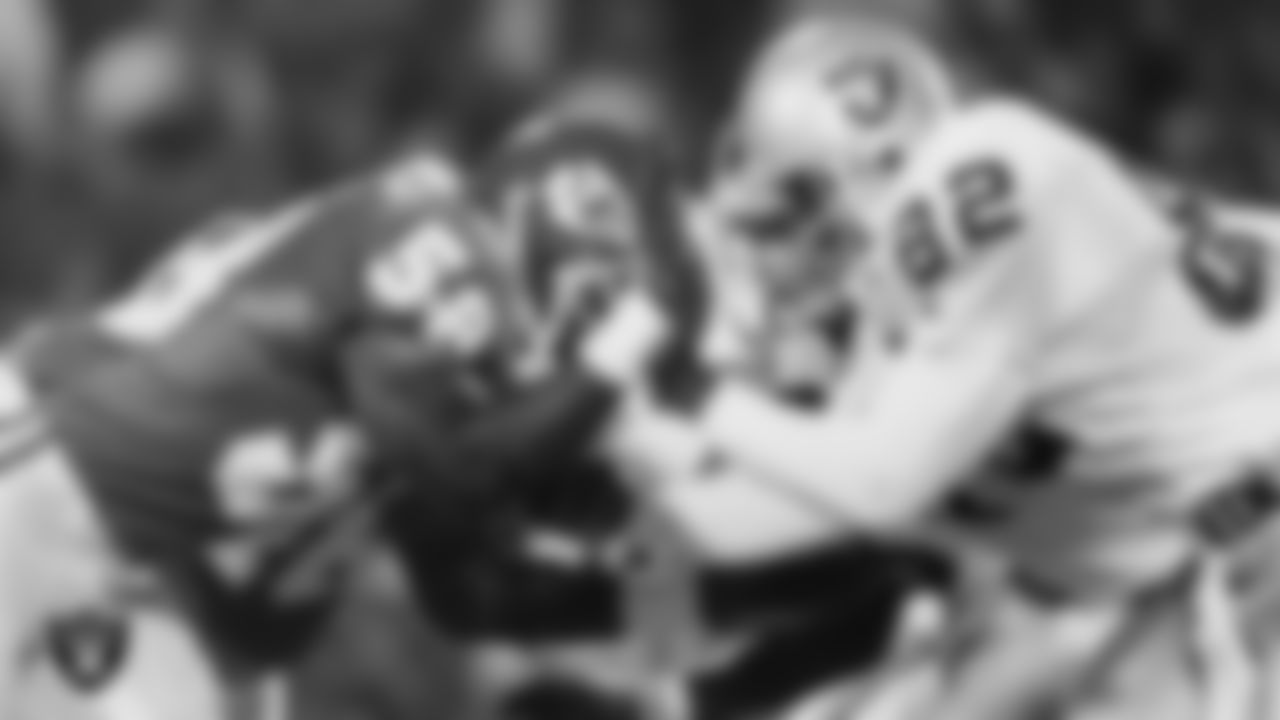
TE David Jones (1992)
Delaware State University

P Marquette King (2013-17)
Fort Valley State University

DB Keenan Lambert (2015)
Norfolk State

DB Dan Land (1989-97)
Albany State University
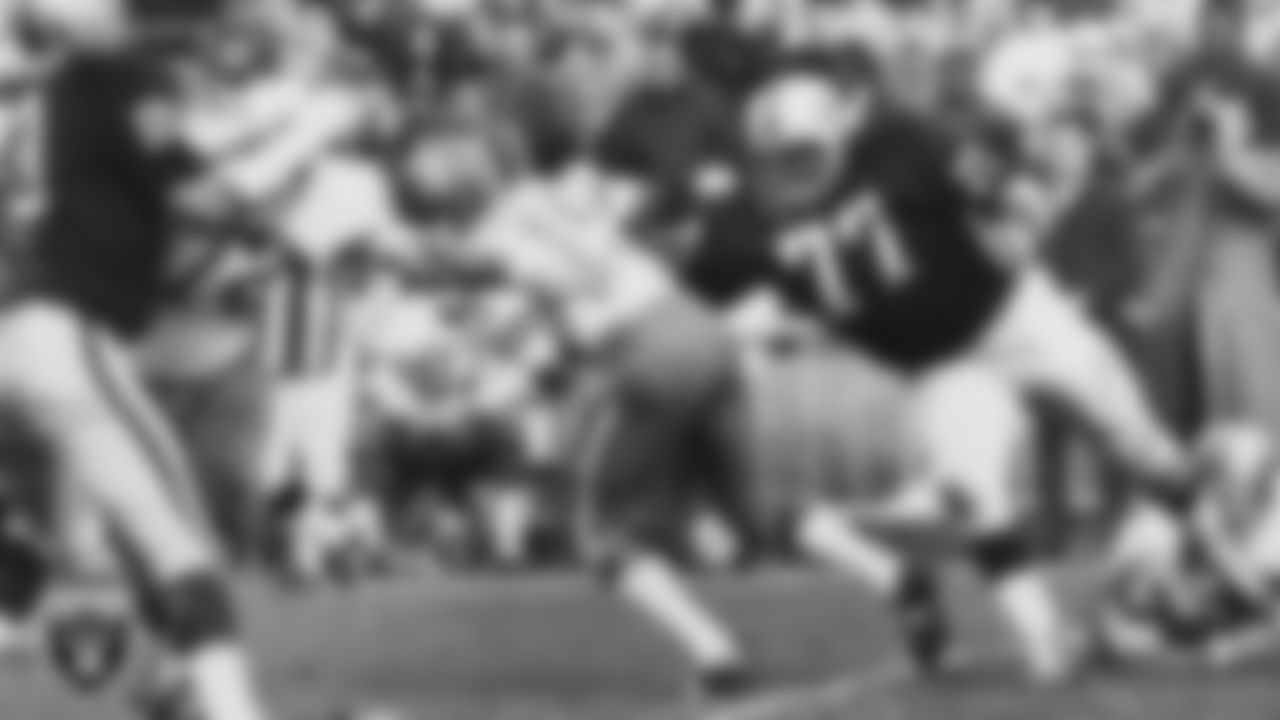
DE Ike Lassiter (1965-69)
St. Augustine
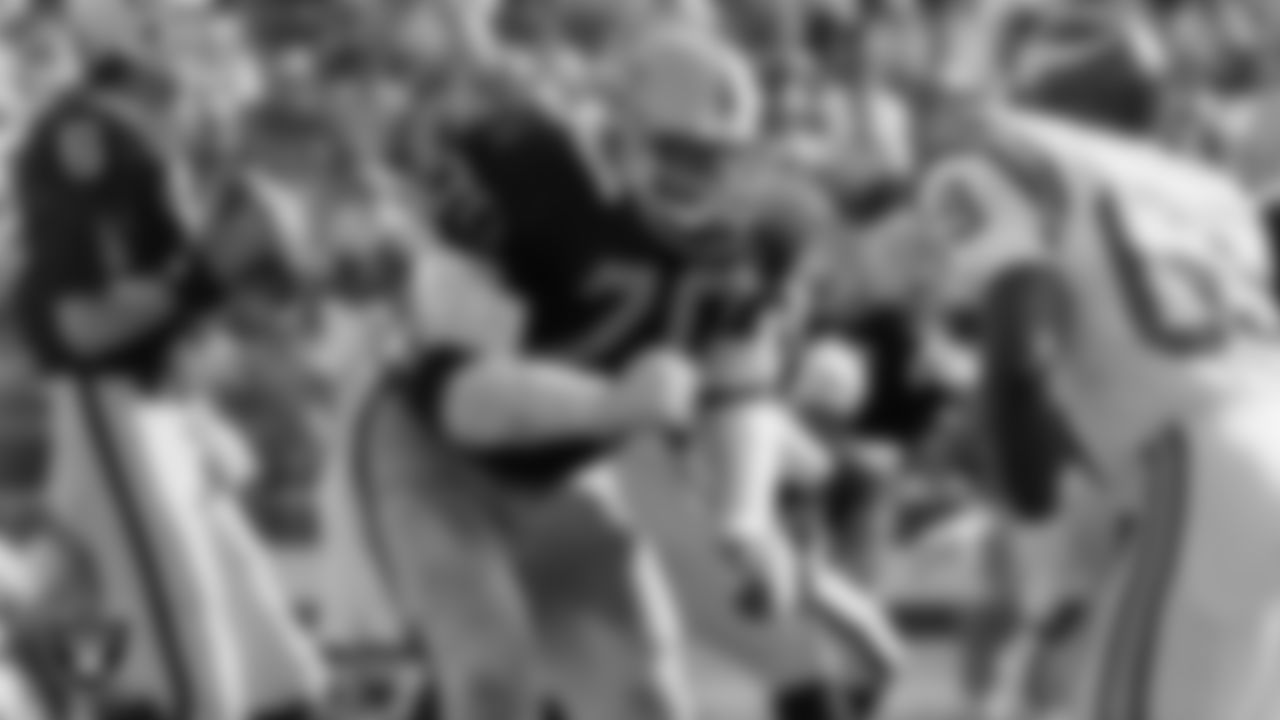
T Henry Lawrence (1974-86)
Florida A&M University

DB Albert Lewis (1994-98)
Grambling State University

DB Garry Lewis (1990-91)
Alcorn State University
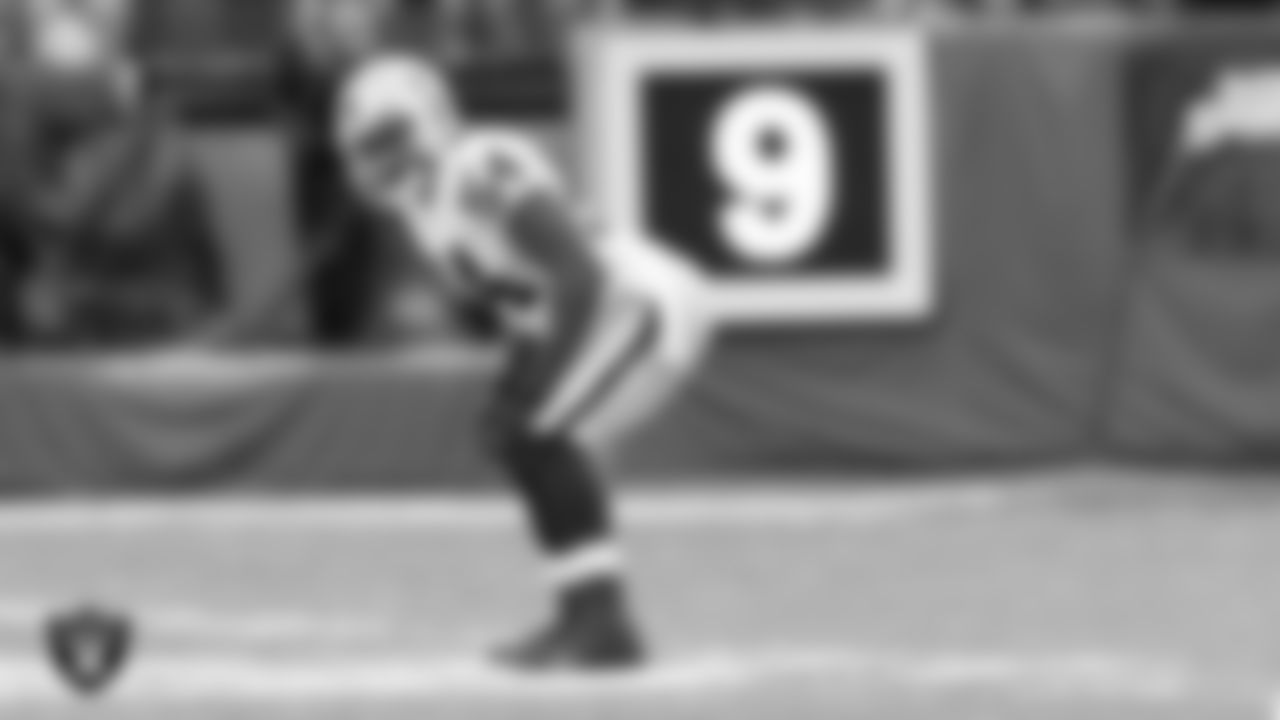
LB Marshall McFadden (2013)
South Carolina State University
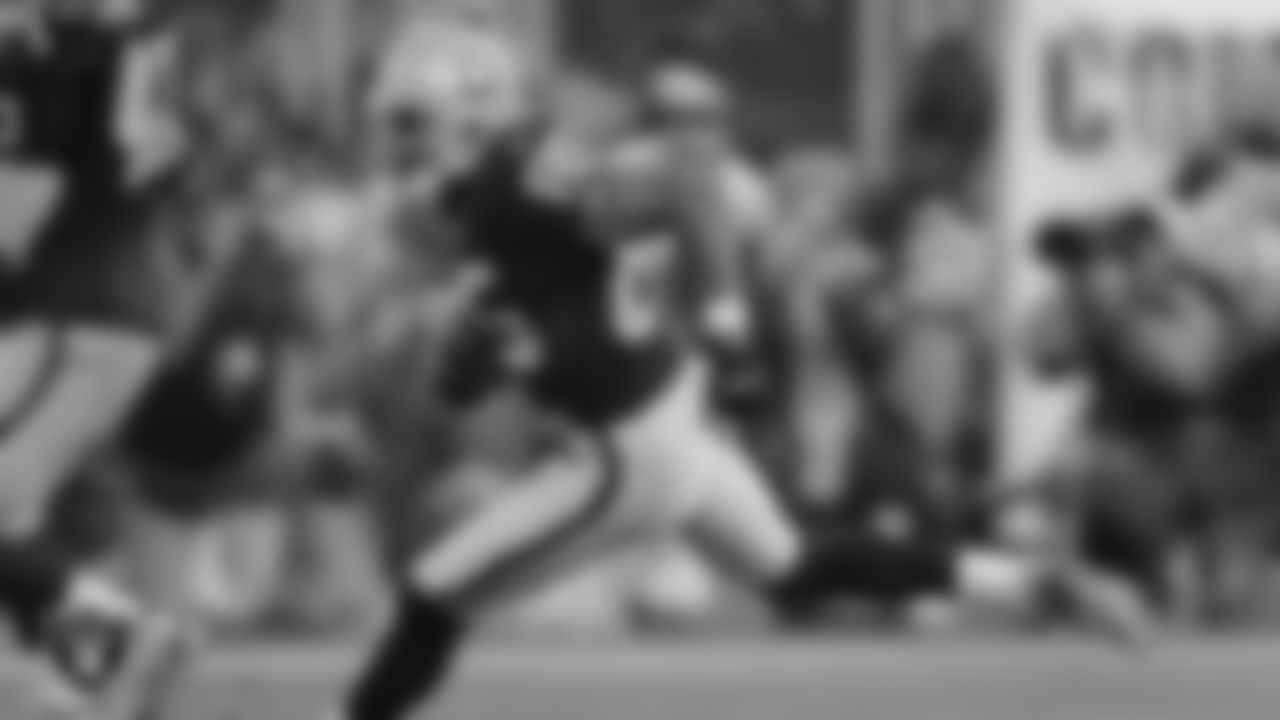
WR Terry Mickens (1998-2000)
Florida A&M University

DE Riley Morris (1960-62)
Florida A&M University
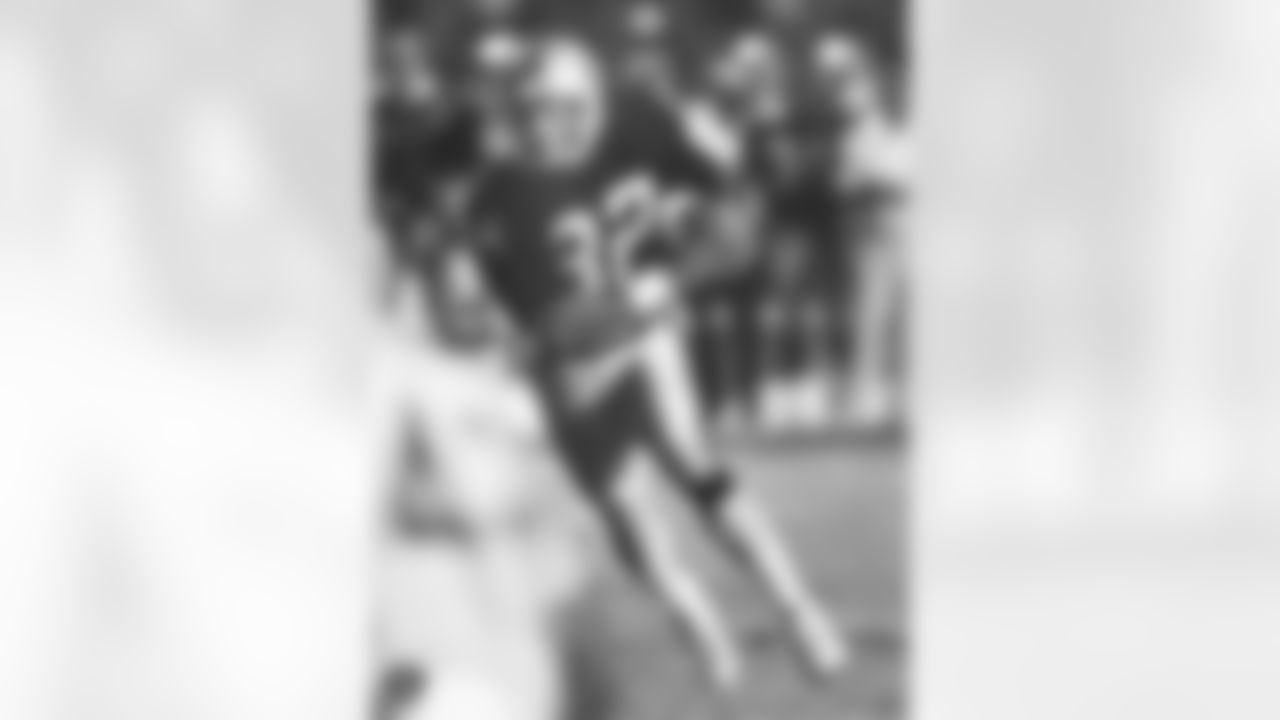
WR Calvin Muhammad (1982-83)
Texas Southern University

G/T Toby Myles (2000-01)
Jackson State University
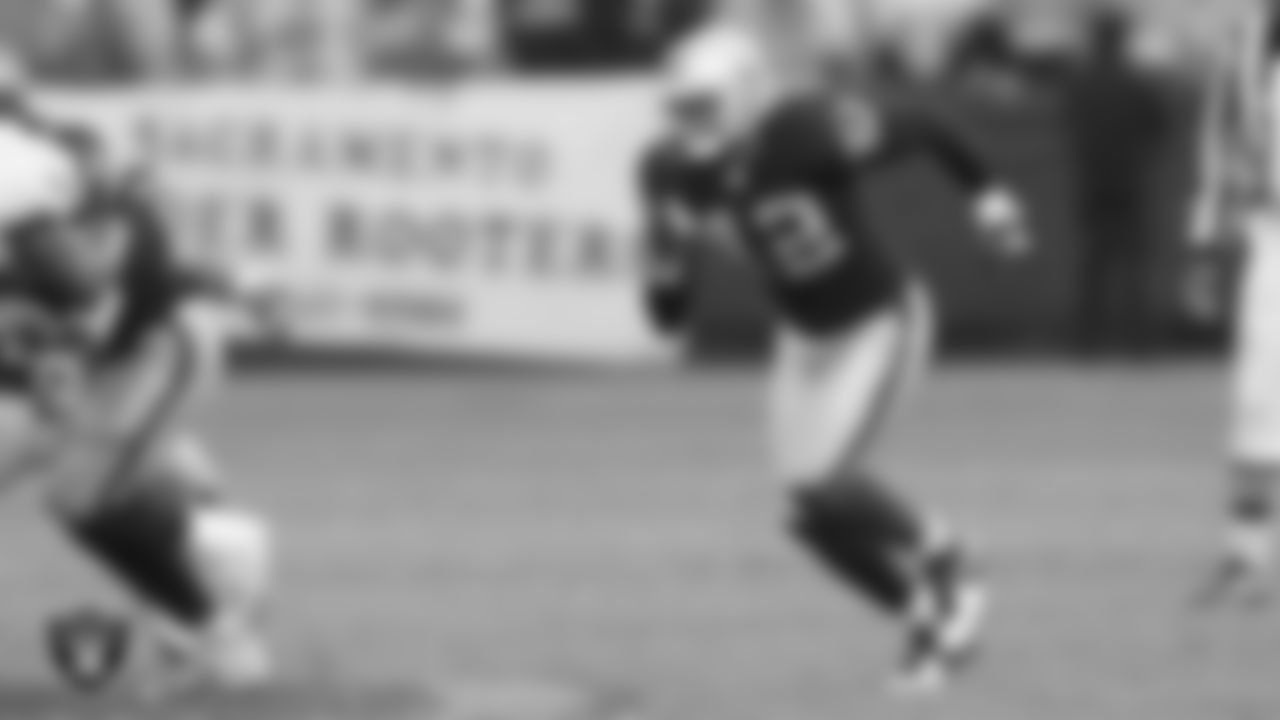
DB Keyon Nash (2004)
Albany State University
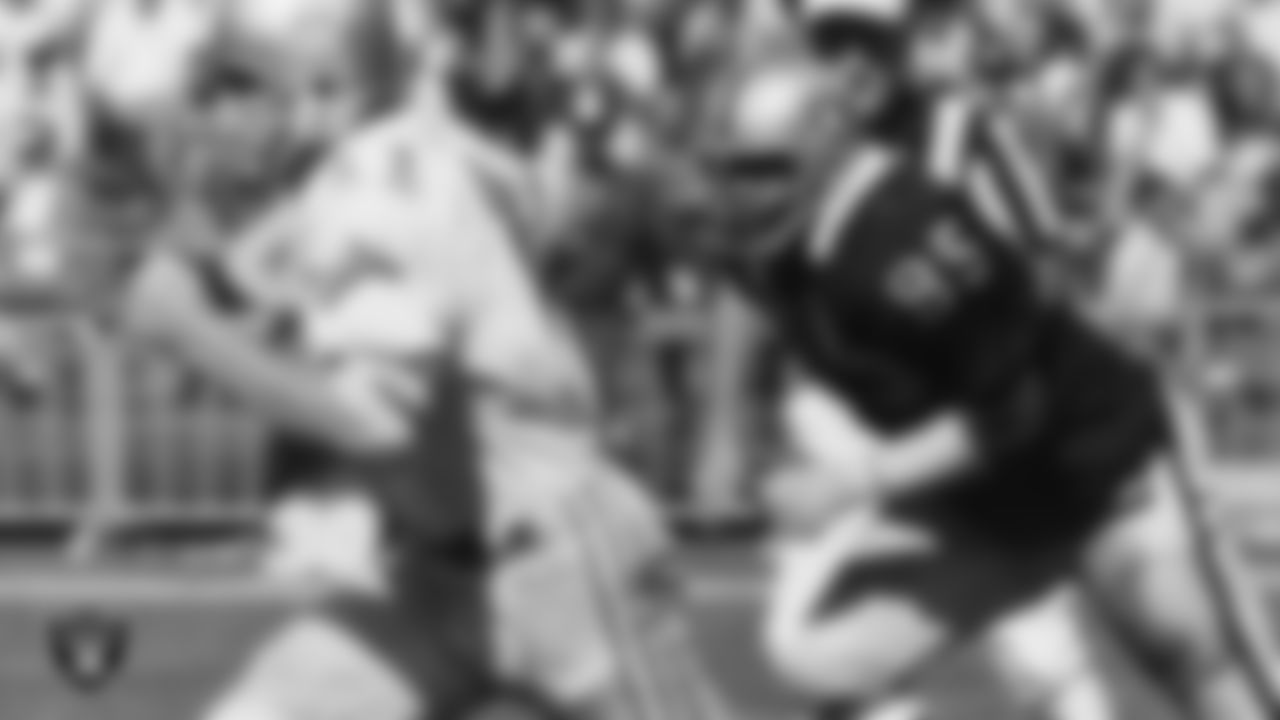
DT Carleton Oats (1965-72)
Florida A&M University

T Brandon Parker (2018-23)
North Carolina A&T State University
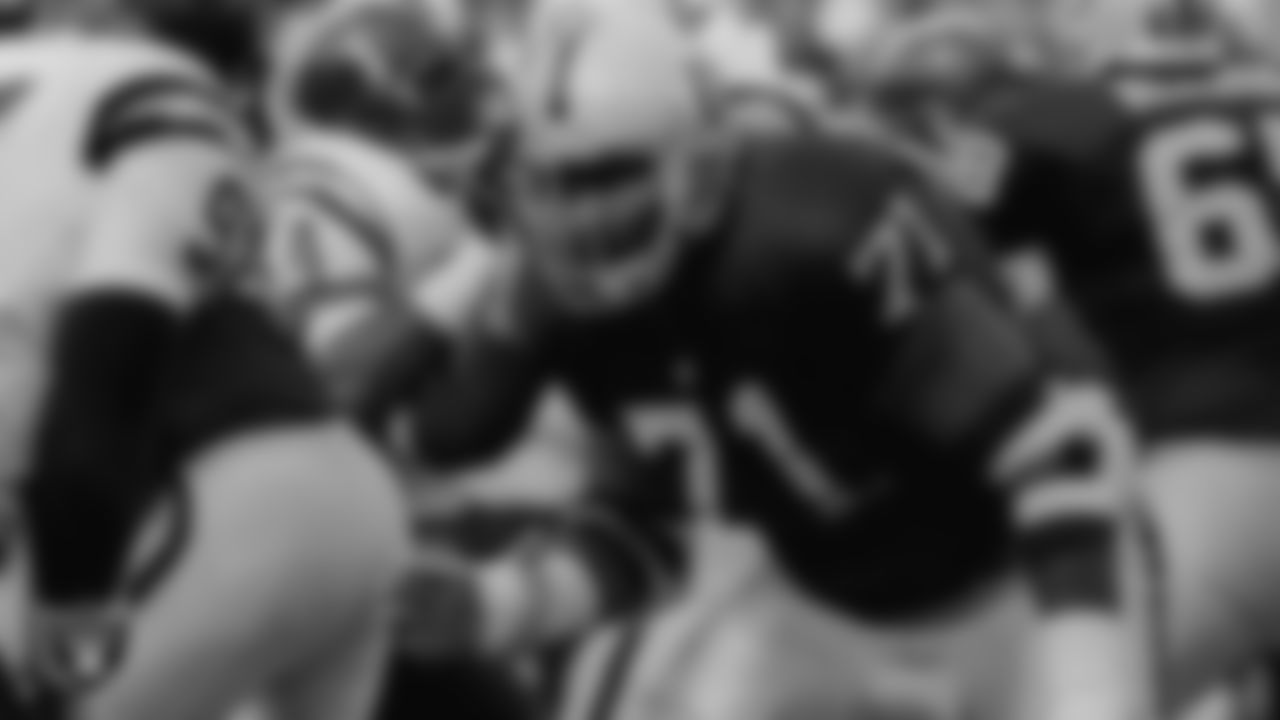
T Gerald Perry (1993-95)
Southern University
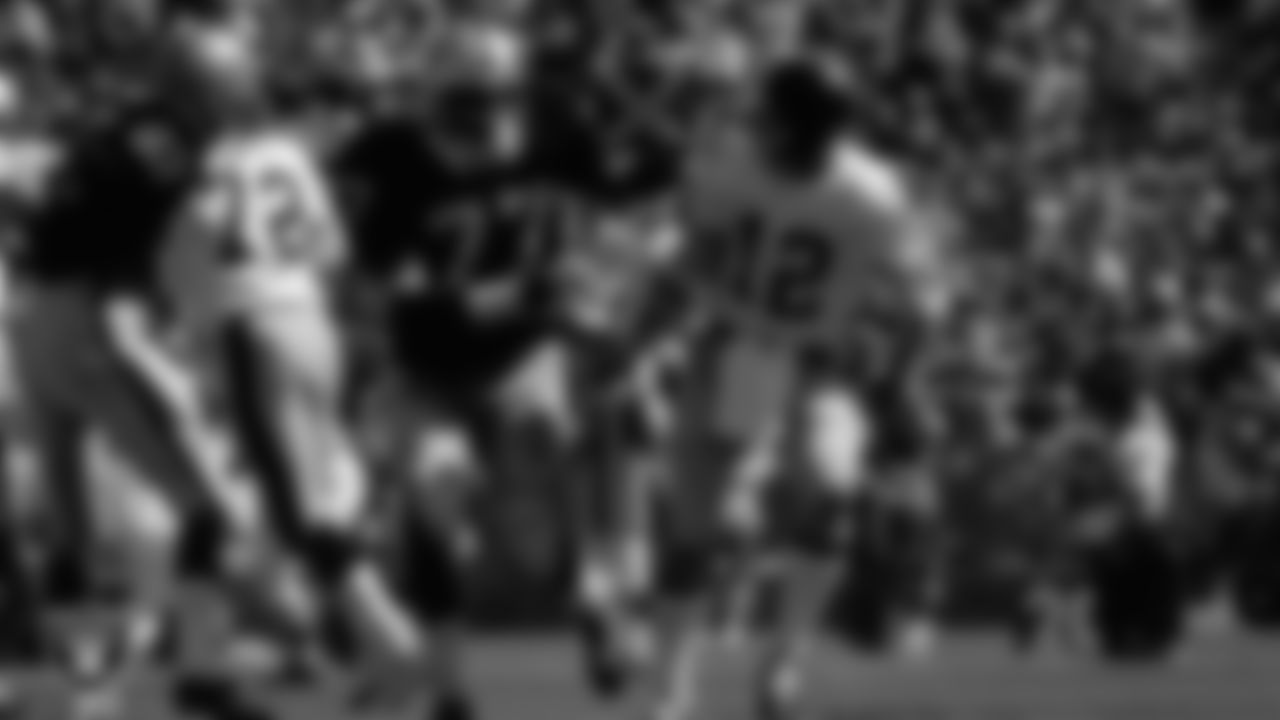
DE Charles Philyaw (1976-79)
Texas Southern University

WR Frank Pitts (1974)
Southern University
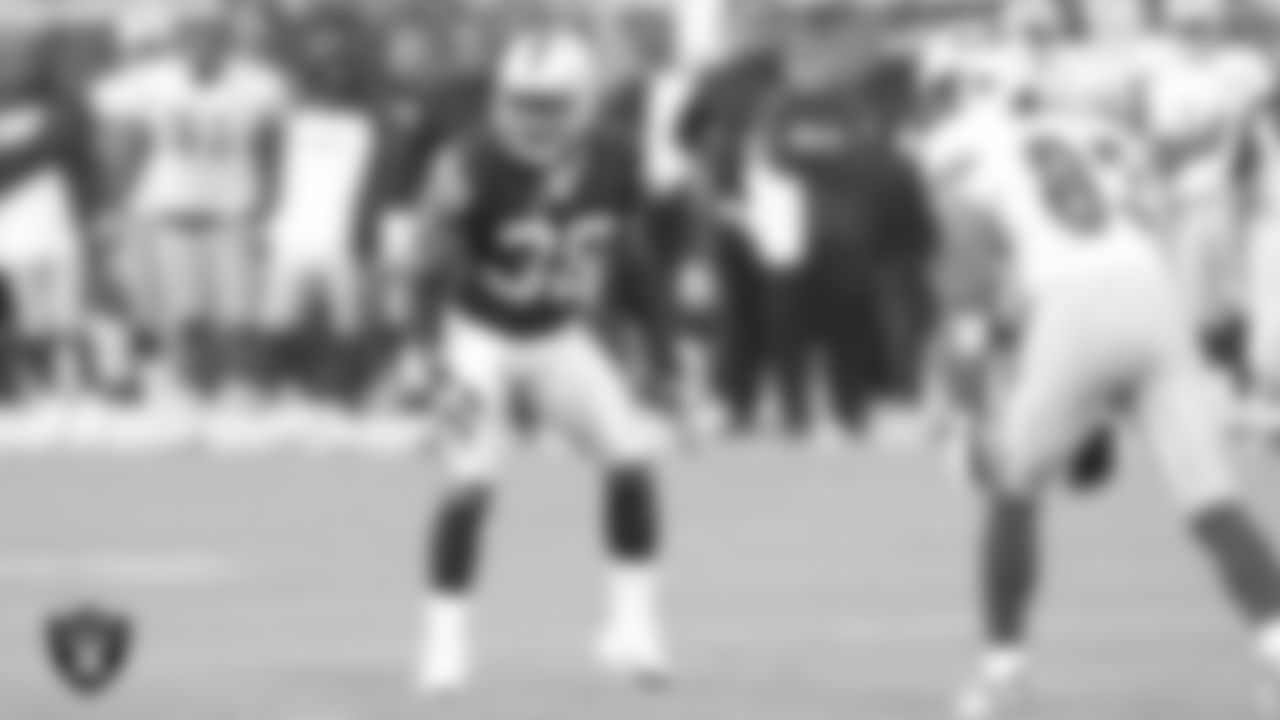
CB Tyrone Poole (2006)
Fort Valley State University
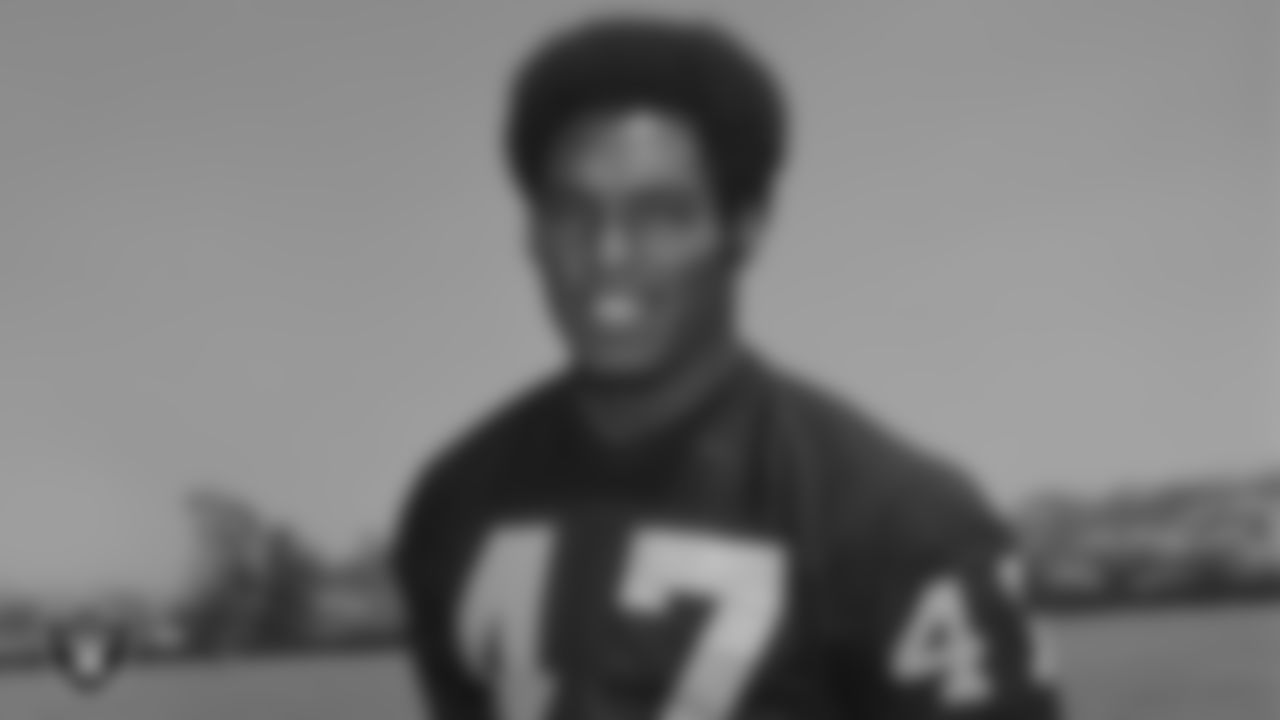
RB/TE Jeff Queen (1972-73)
Morgan State

LB Floyd Rice (1976-77)
Alcorn State
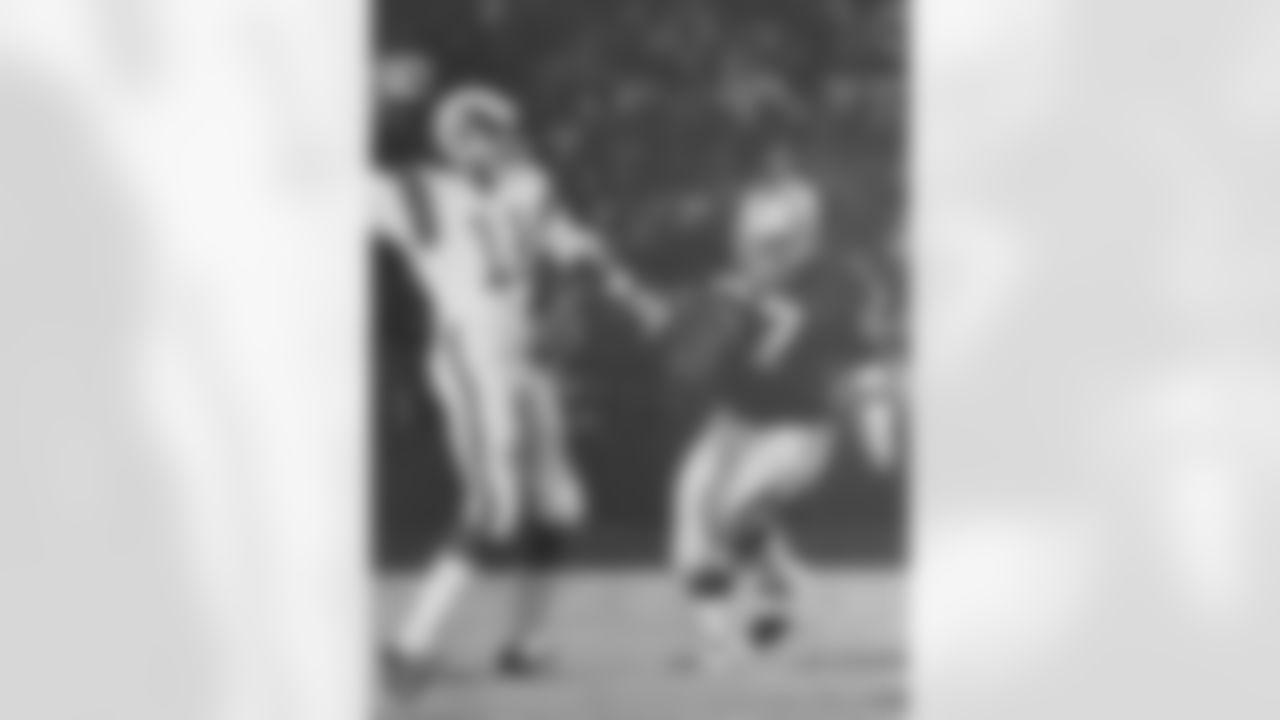
RB Harold Rice (1971)
Tennessee State University
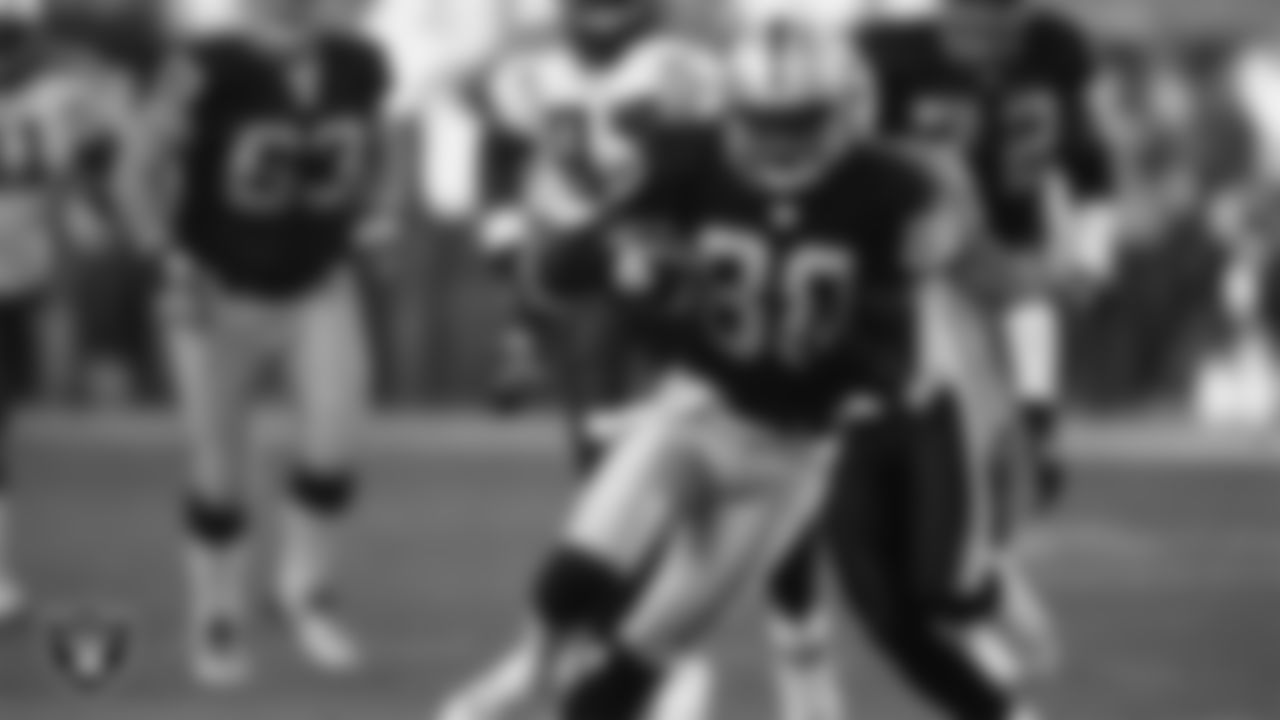
WR Jerry Rice (2001-04)
Mississippi Valley State University
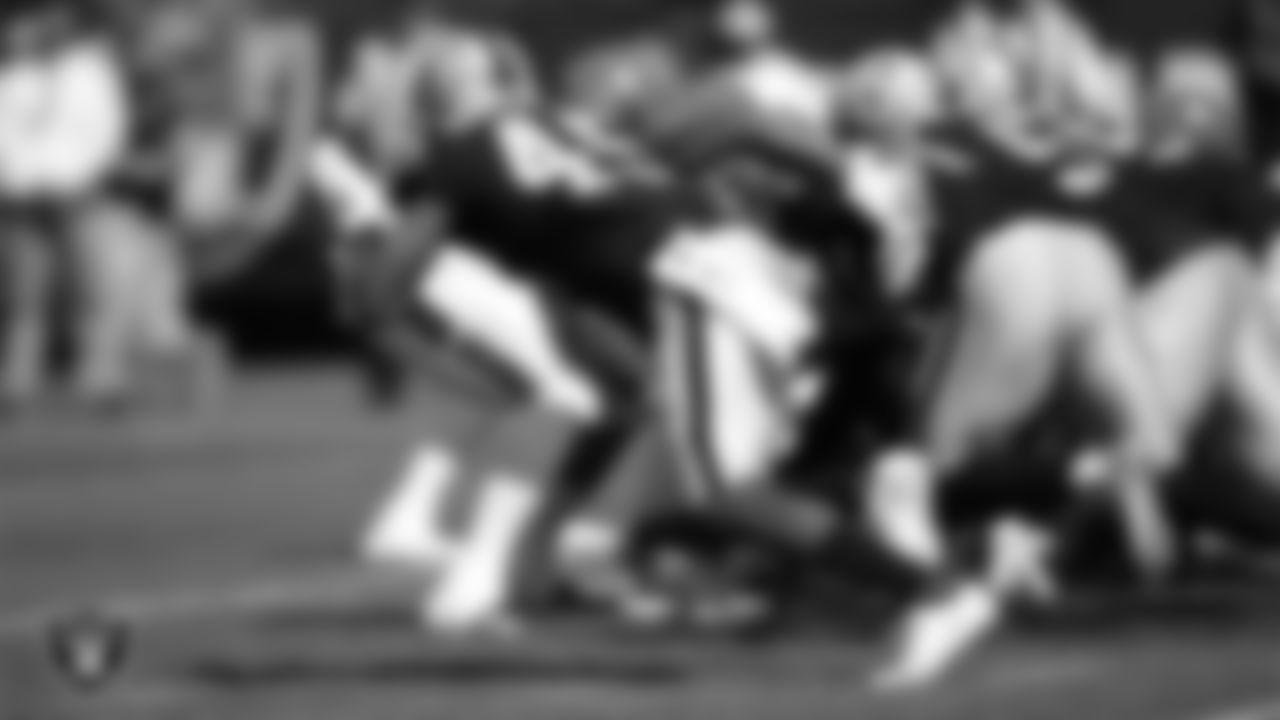
DB Dominique Rodgers-Cromartie (2018)
Tennessee State University
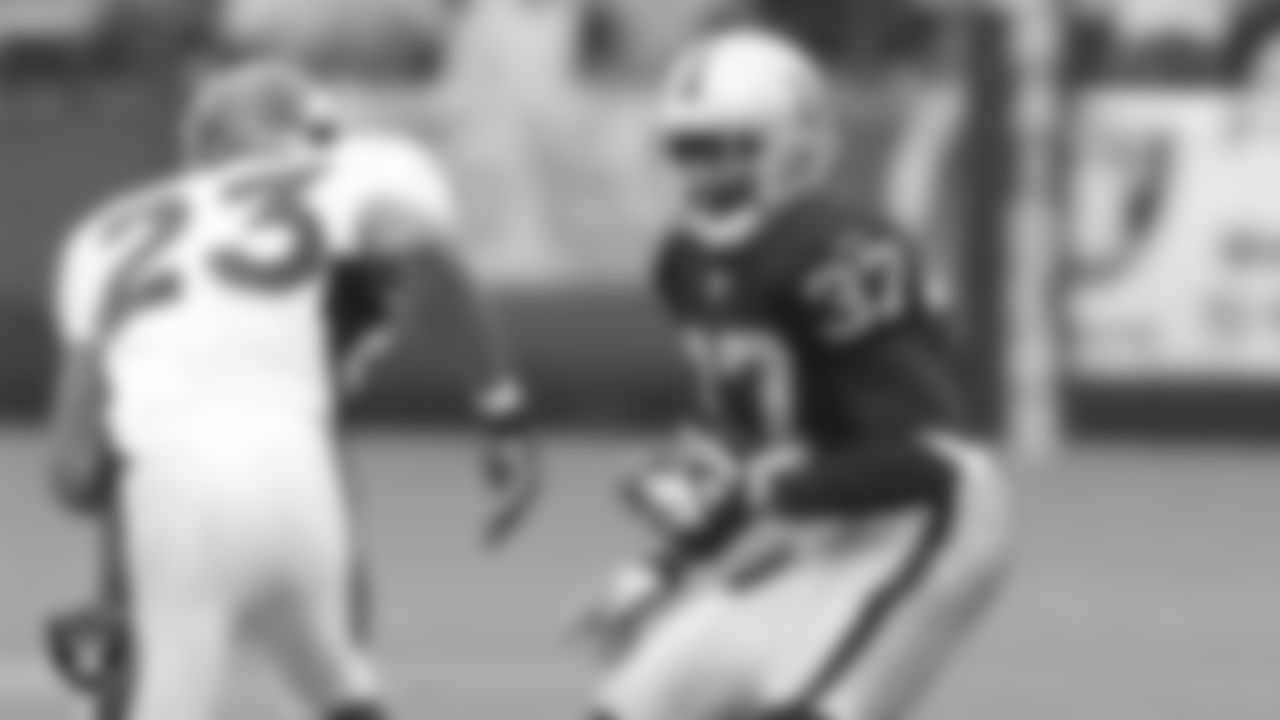
DB Carey Scott (2002-03)
Kentucky State University

T Art Shell (1968-82)
Maryland State

T Chad Slaughter (2002-06)
Alcorn State University
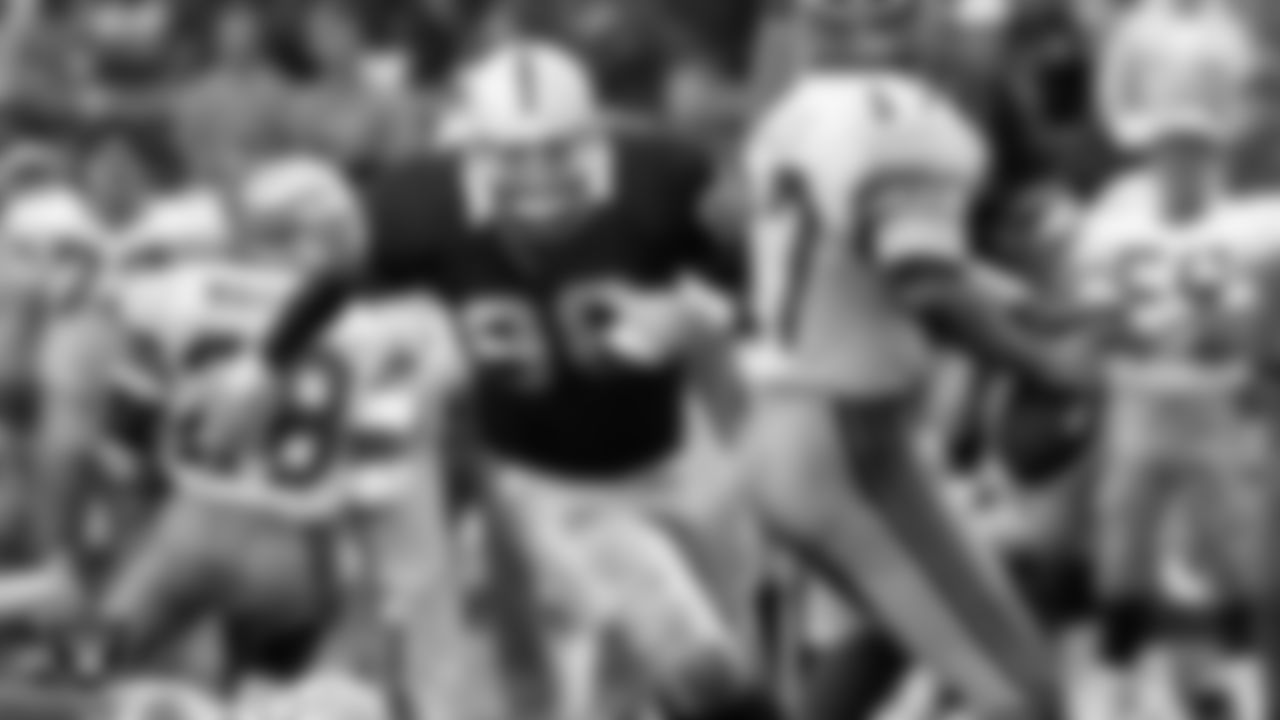
DT Malcolm Taylor (1987-88)
Tennessee State University
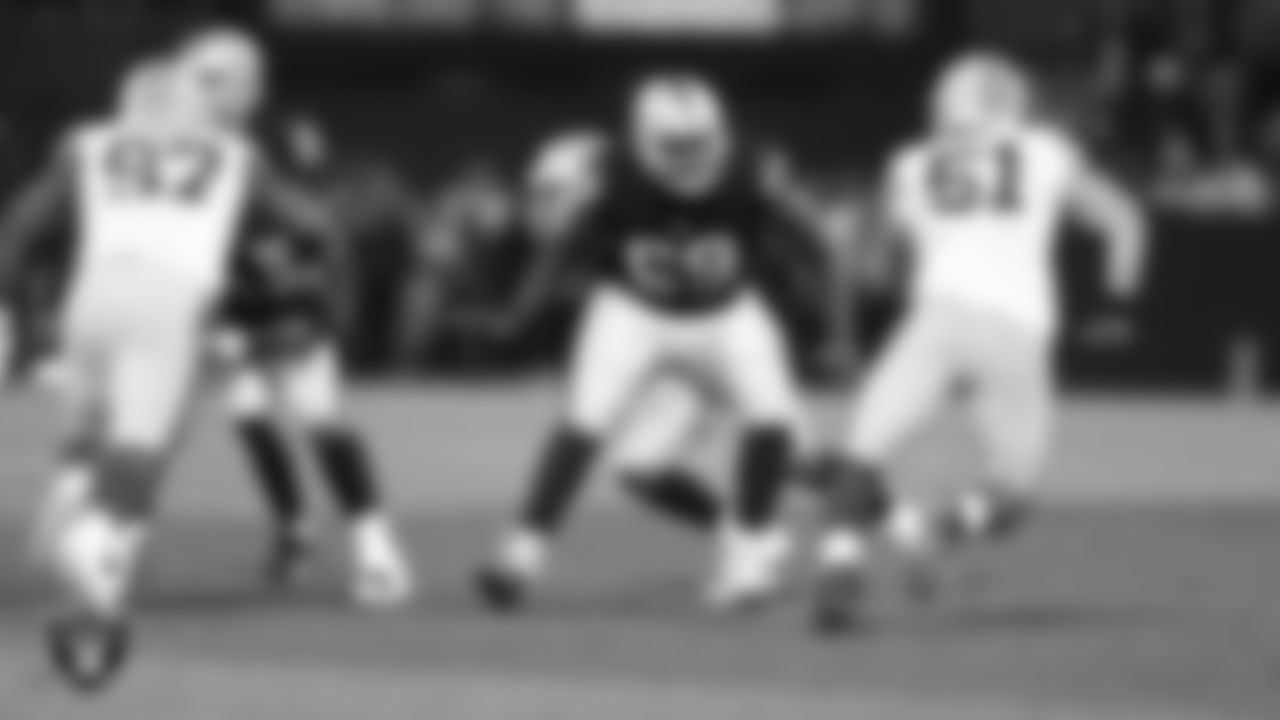
T Jylan Ware (2017)
Alabama State
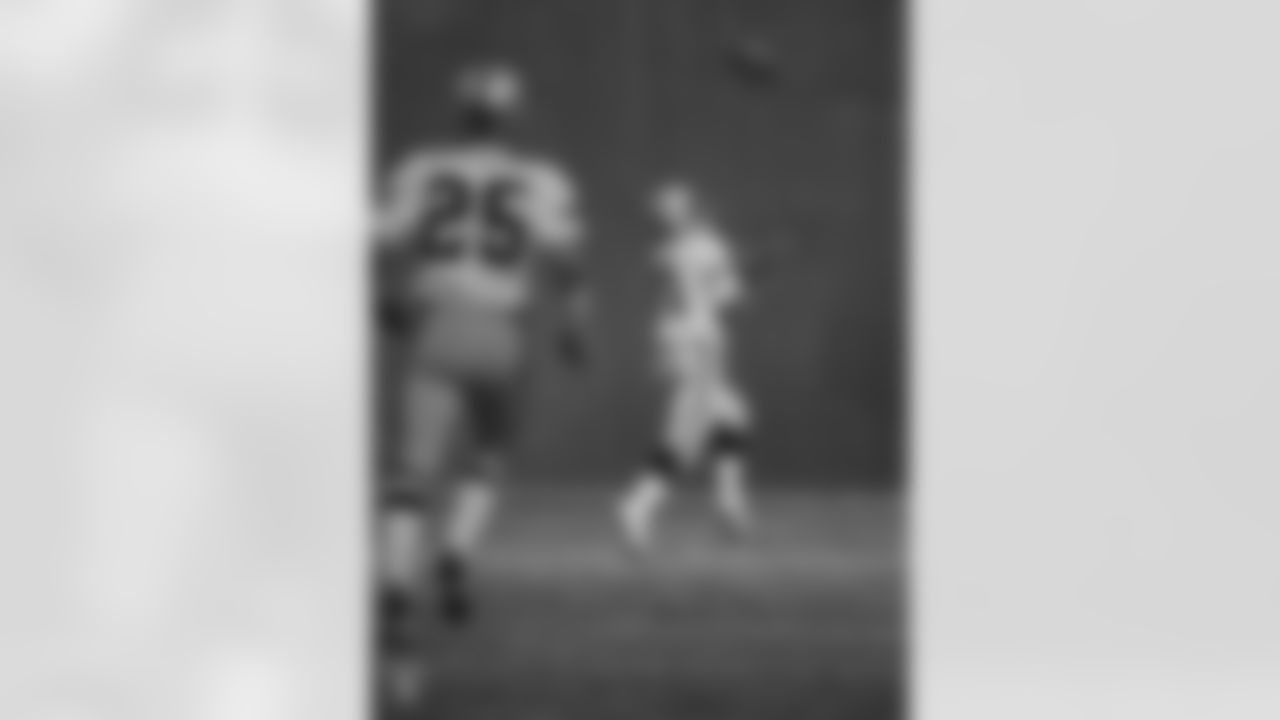
WR Warren Wells (1967-70)
Texas Southern University
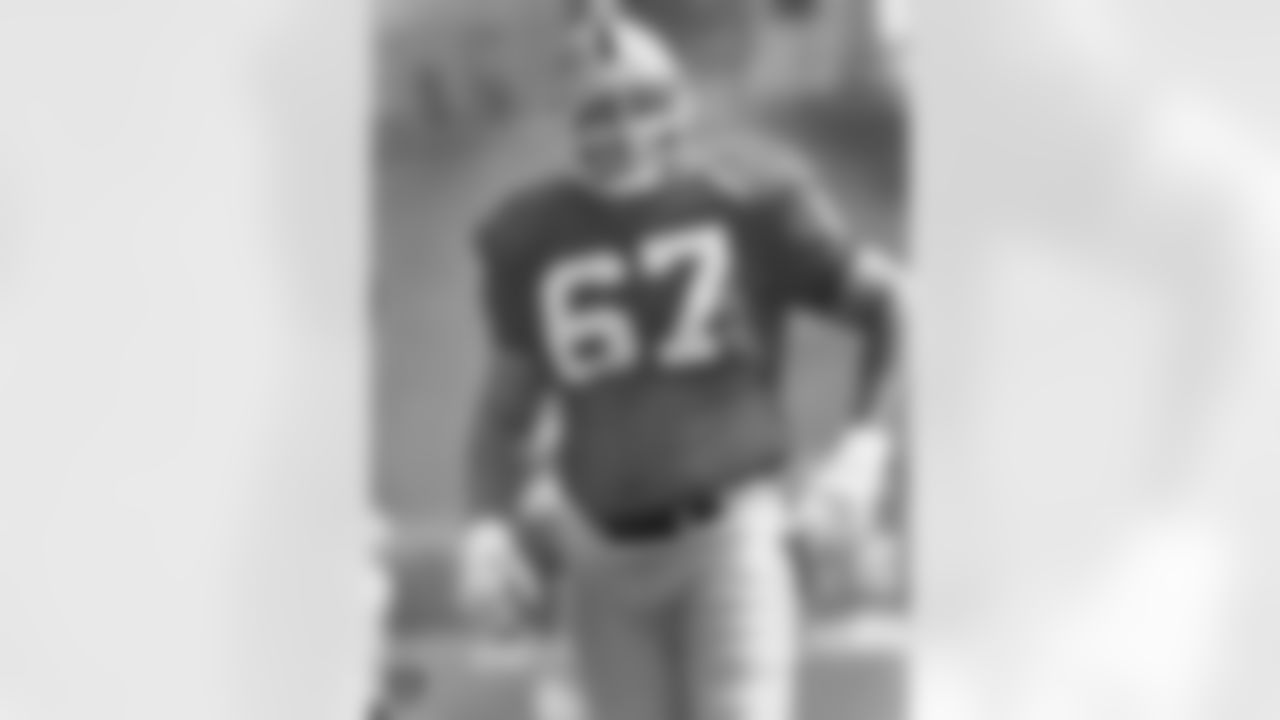
C/T Dwight Wheeler (1984) (1987-88)
Tennessee State University
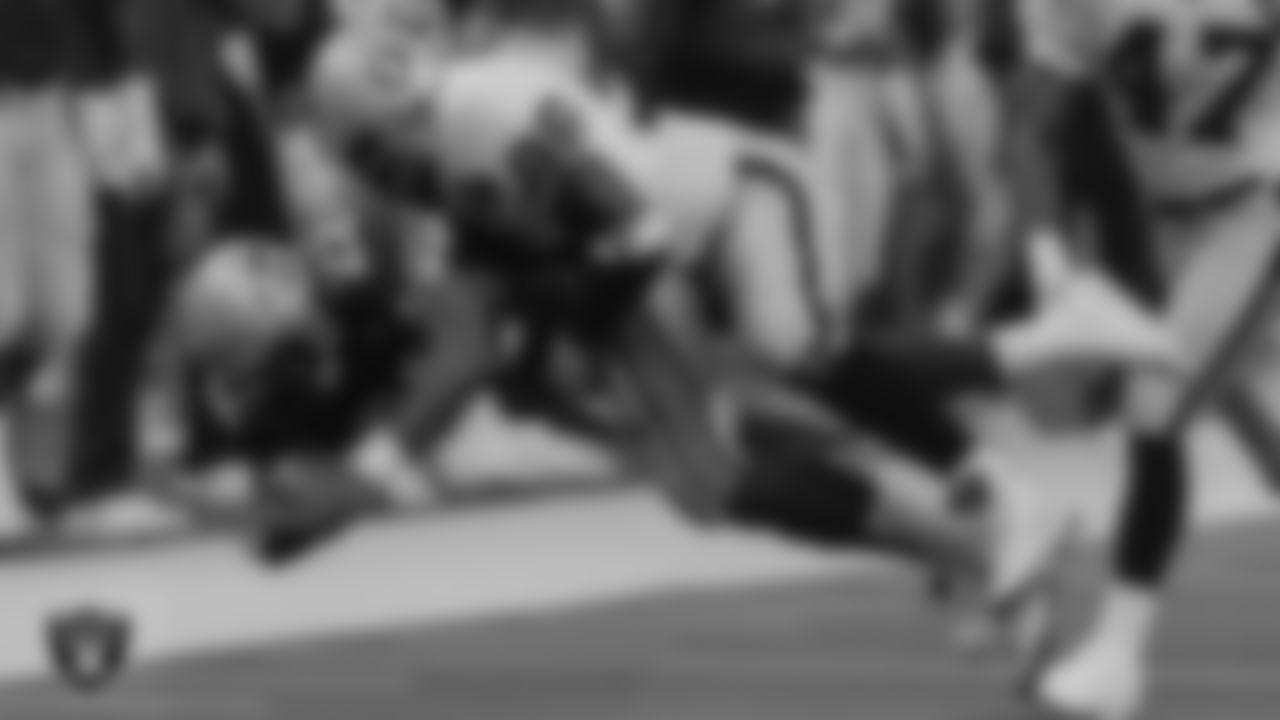
DE Alberto White (1994)
Texas Southern University
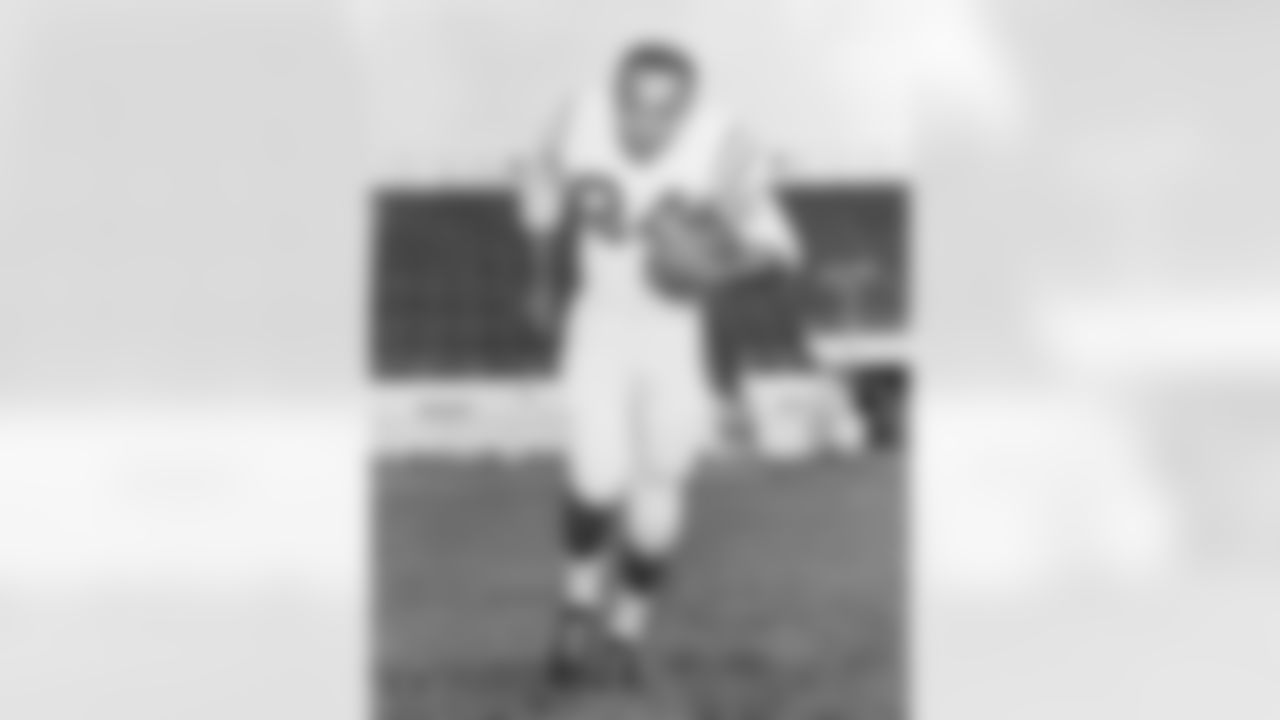
RB Eugene White (1962)
Florida A&M University

DB Howie Williams (1964-69)
Howard University

DB Ricky Williams (1985) (1987)
Langston University

DB Willie Brown (1967-78)
Grambling State University

DB Nemiah Wilson (1968-74)
Grambling State University

DB Alvin Wyatt (1970)
Bethune-Cookman University




